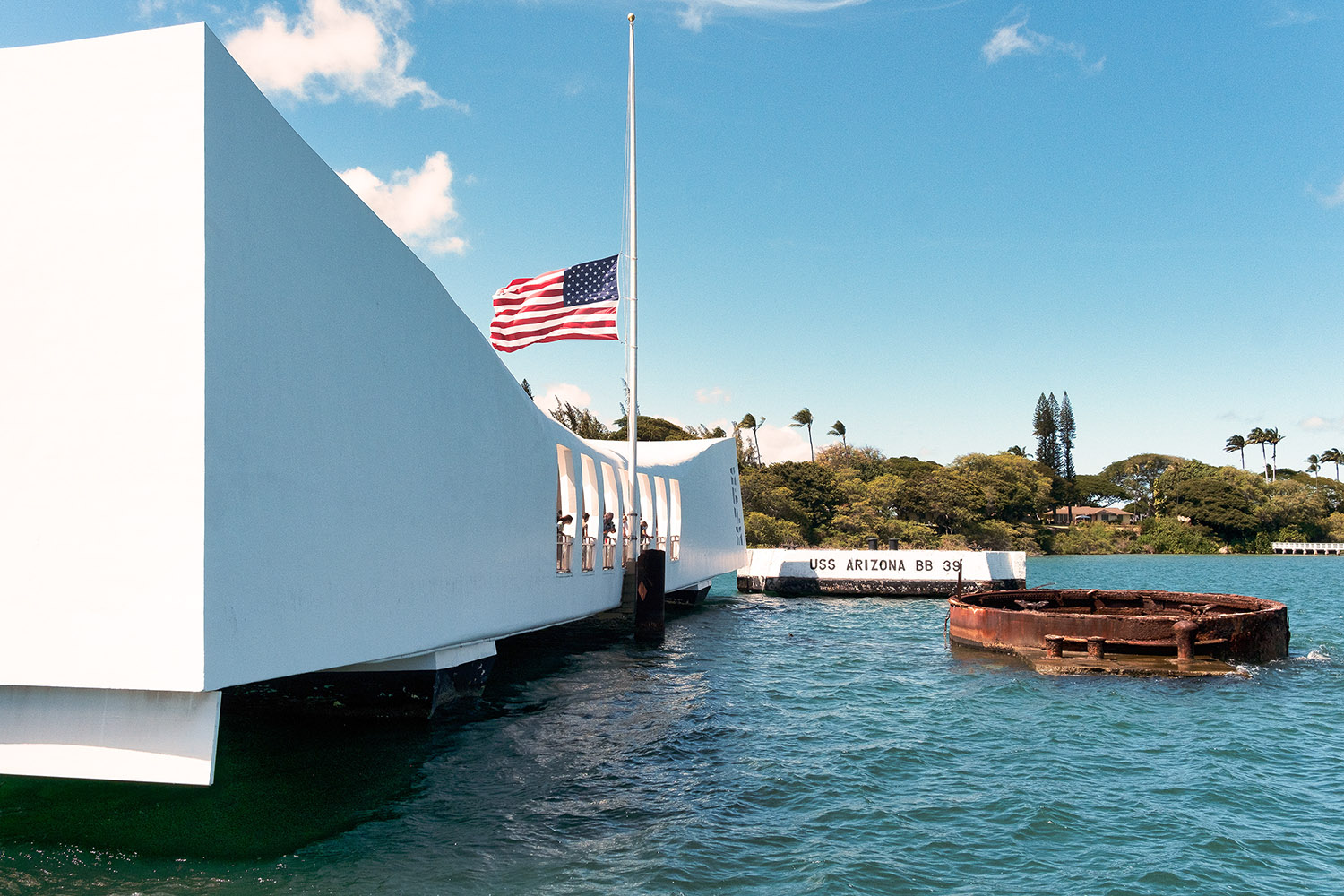
The U.S.S. Arizona Memorial. The flag was at half-mast to honor Colin Powell who had died that day.
While on vacation in Hawaii in October of 2021, I visited Pearl Harbor. I had not been there since December of 1980, and the only part I visited at the time was the U.S.S. Arizona Memorial, so this was a welcome opportunity to refresh my memory and see other exhibits as well. I strongly recommend a visit to Peal Harbor to anyone interested in history in general and World War II in particular. However, be aware that the whole place is run by the United States armed forces, and no bags, backpacks, or anything else suitable for carrying lenses and other photo accessories are allowed. Lockers are provided, and I had to leave my backpack behind. Consequently, I only had the 18-55 mm lens to take all the photos on this page. It's something to keep in mind if you are planning a visit.
The memorial was as I remembered it: a moving and dignified tribute to the more than 1,170 who lost their lives on the battleship U.S.S. Arizona that sank during the attack on Pearl Harbor on December 7, 1941, a day that, according to Franklin D. Roosevelt, shall live in infamy.

|
The U.S.S. Arizona Memorial. The flag was at half-mast to honor Colin Powell who had died that day. |
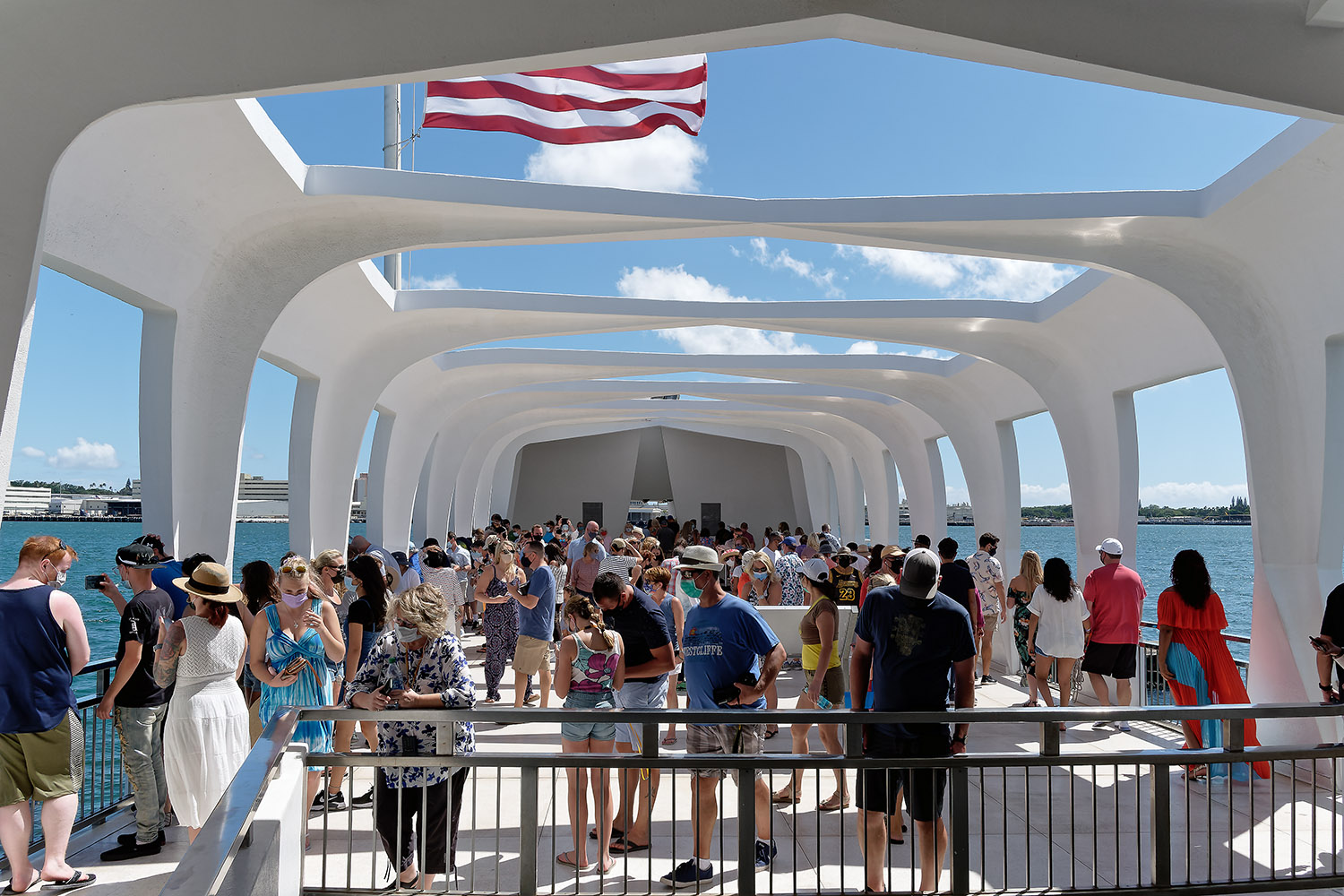
|
There were quite a few visitors inside the Arizona memorial |
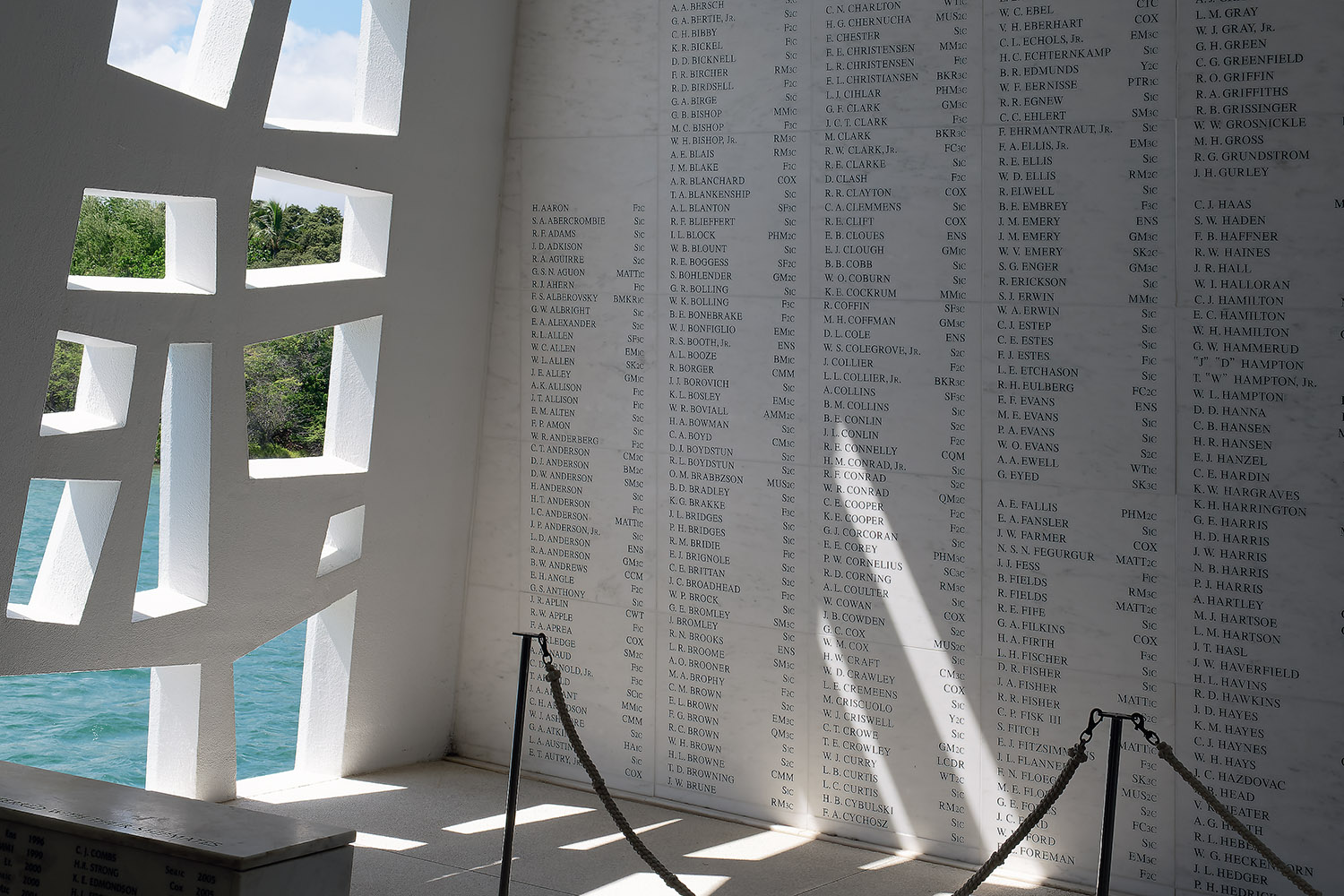
|
The chapel-like shrine at the far end of the Memorial |
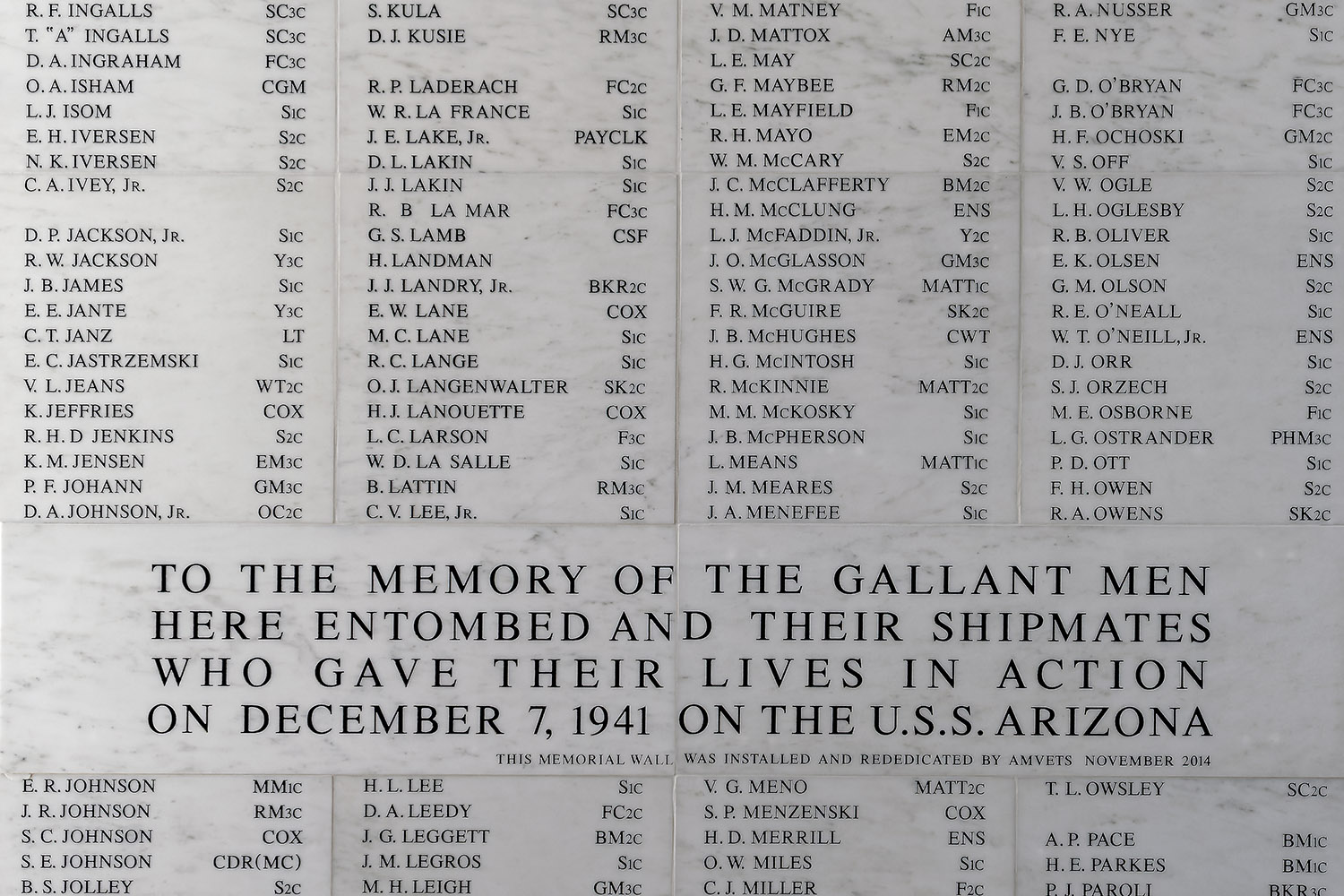
|
A portion of the marble wall listing the names of those killed on December 7, 1941 |
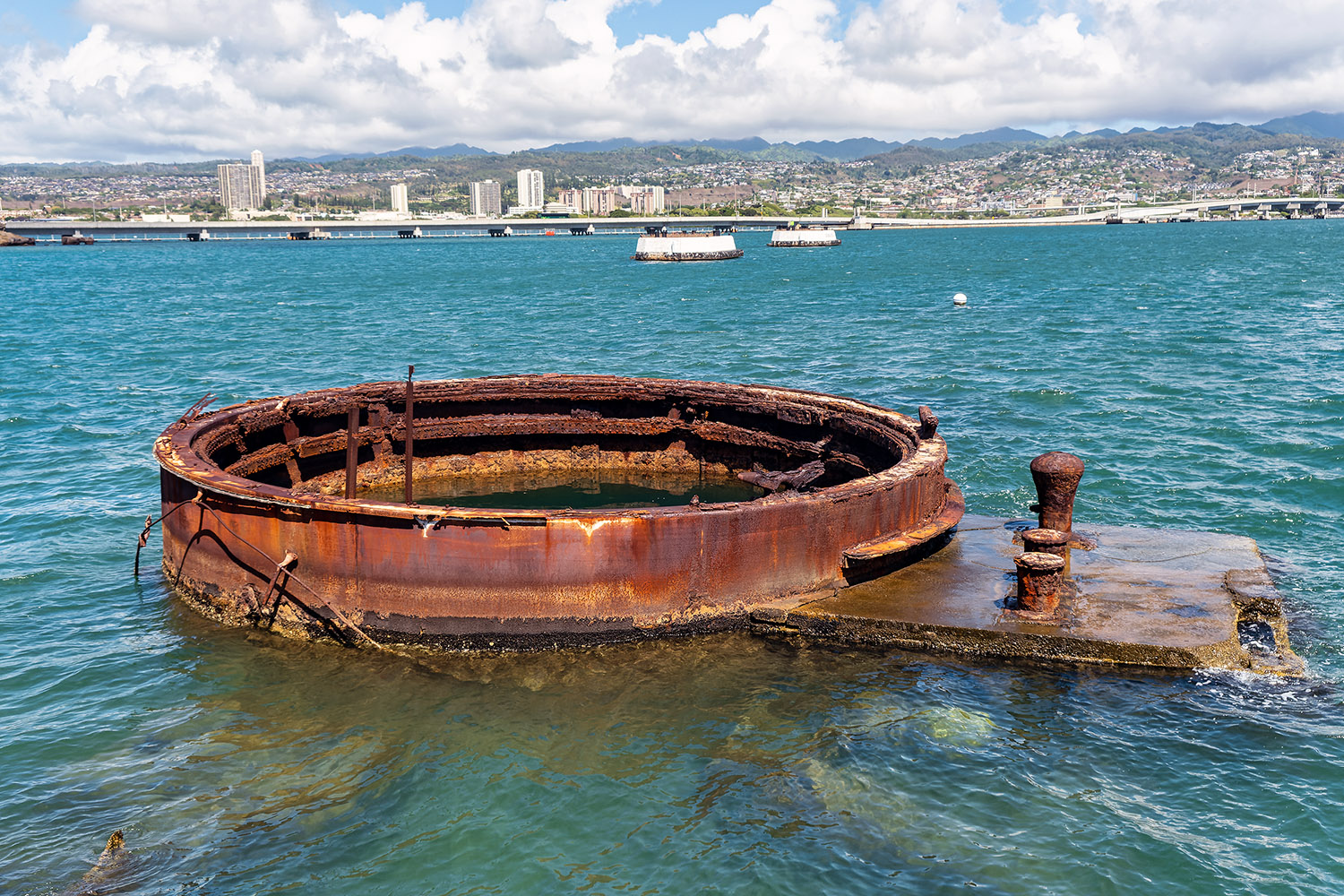
|
A gun turret of the U.S.S. Arizona |
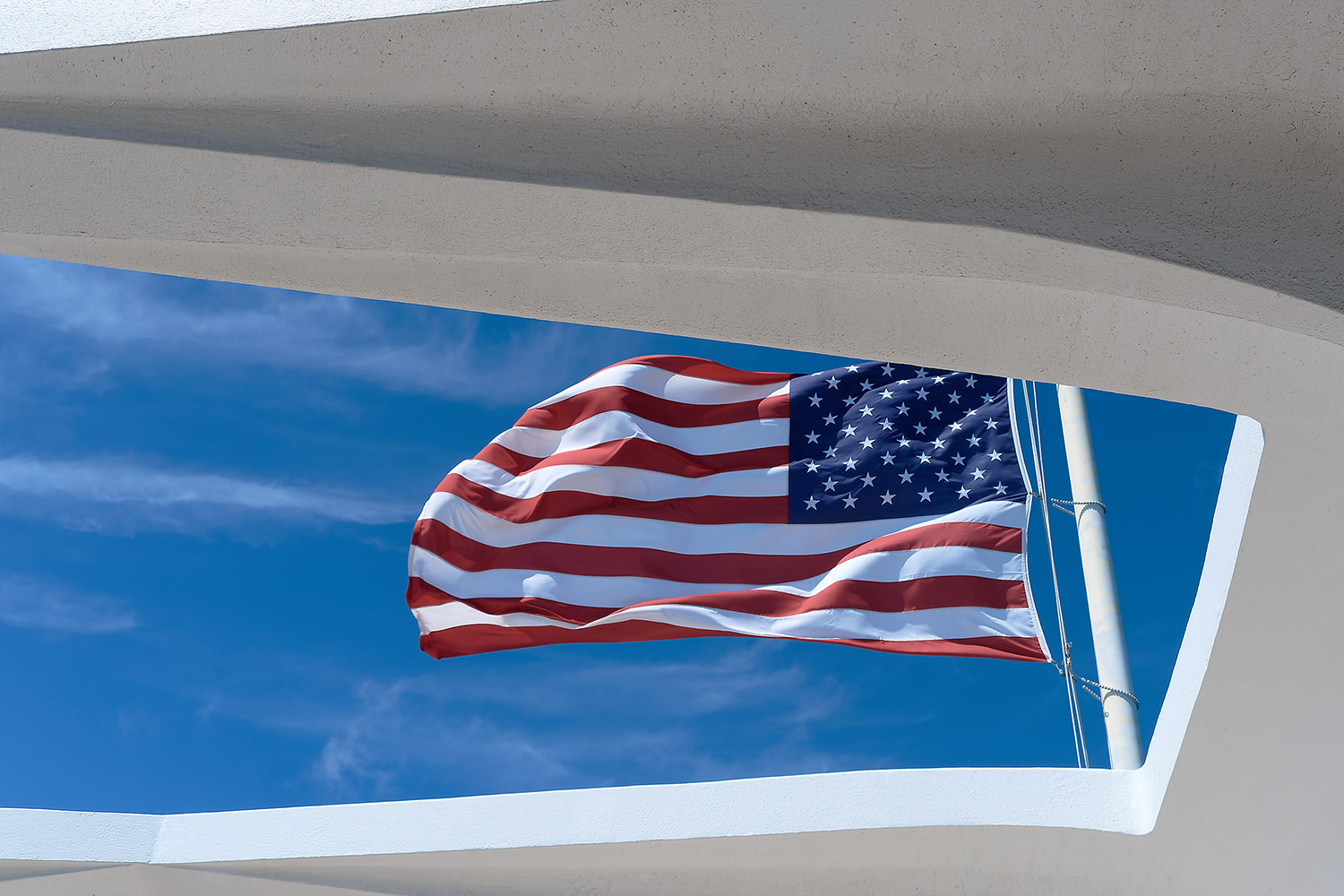
|
The Star-Spangled Banner seen through the roof of the U.S.S. Arizona Memorial |
The U.S.S. Missouri, ordered in 1940 and commissioned in 1944, is the last and most formidable battleship the United States Navy ever had. She saw action in the Pacific during World War II; later, she fought in the Korean War from 1950 to 1953 and was decommissioned a first time in 1955. In 1984, The U.S.S. Missouri was modernized and reactivated to provide support during Operation Desert Storm. She was finally decommissioned in 1992 and became a museum ship at Pearl Harbor in 1998.
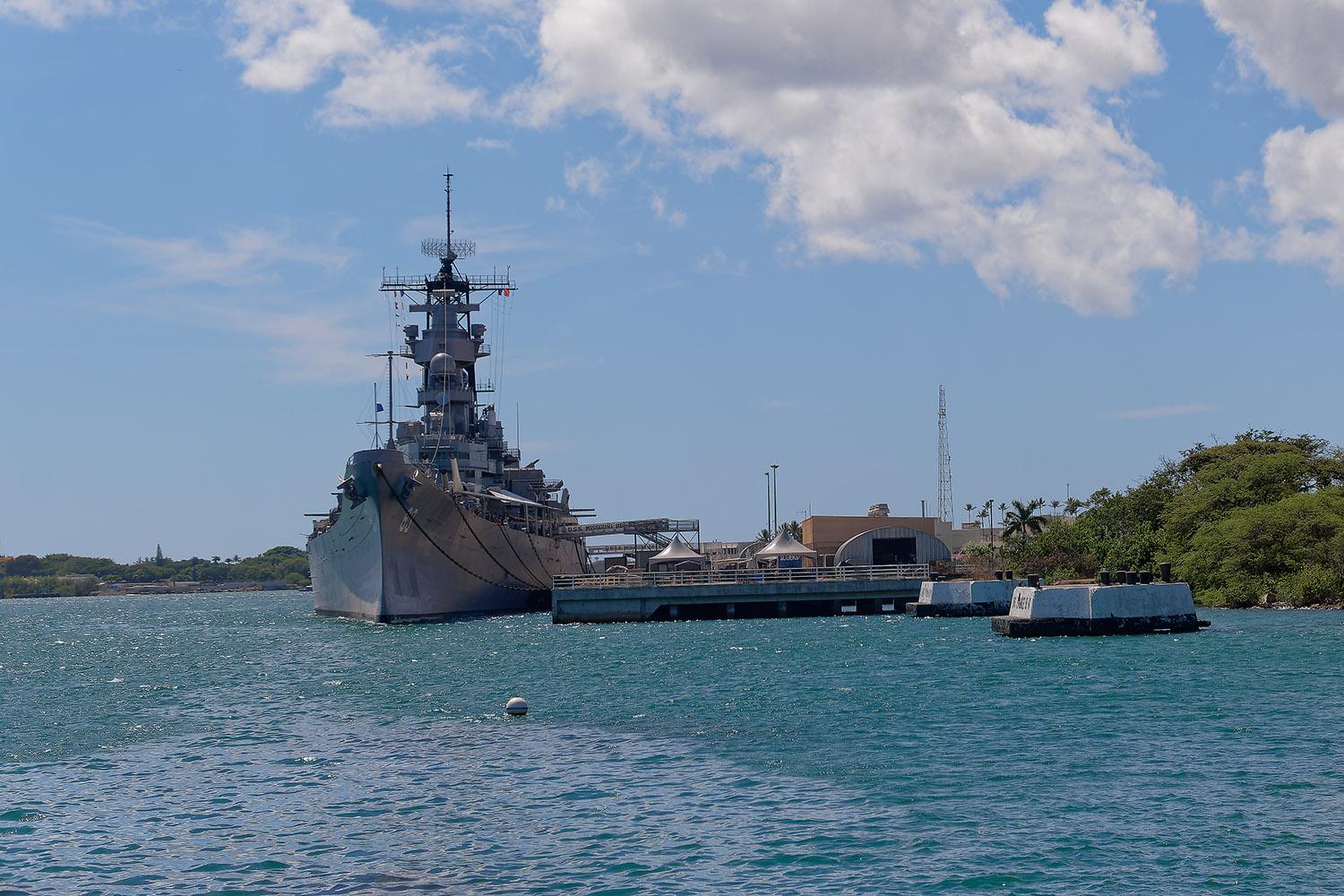
|
The huge U.S.S. Missouri seen from the U.S.S. Arizona Memorial |
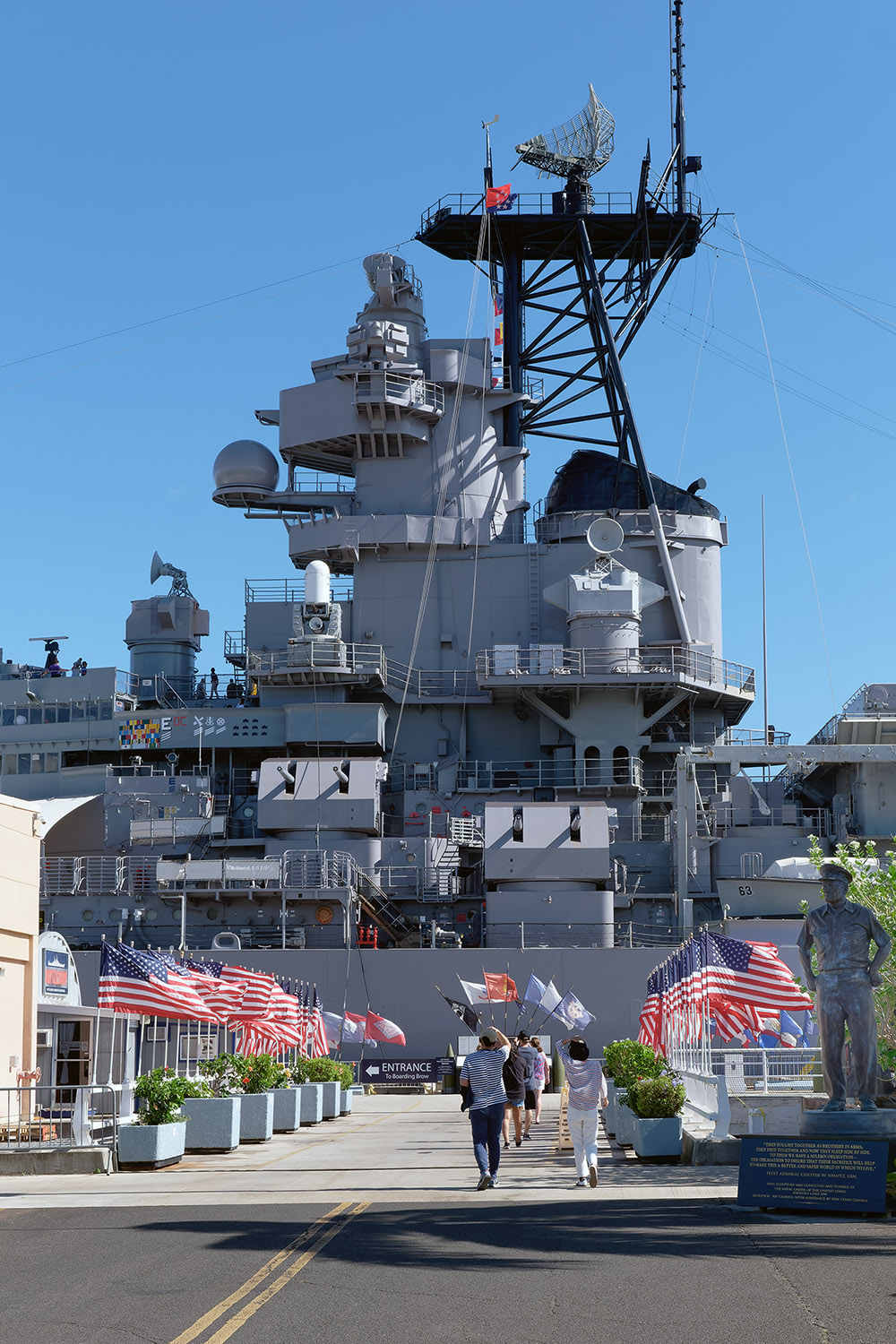
|
The visitor entrance to the battleship |
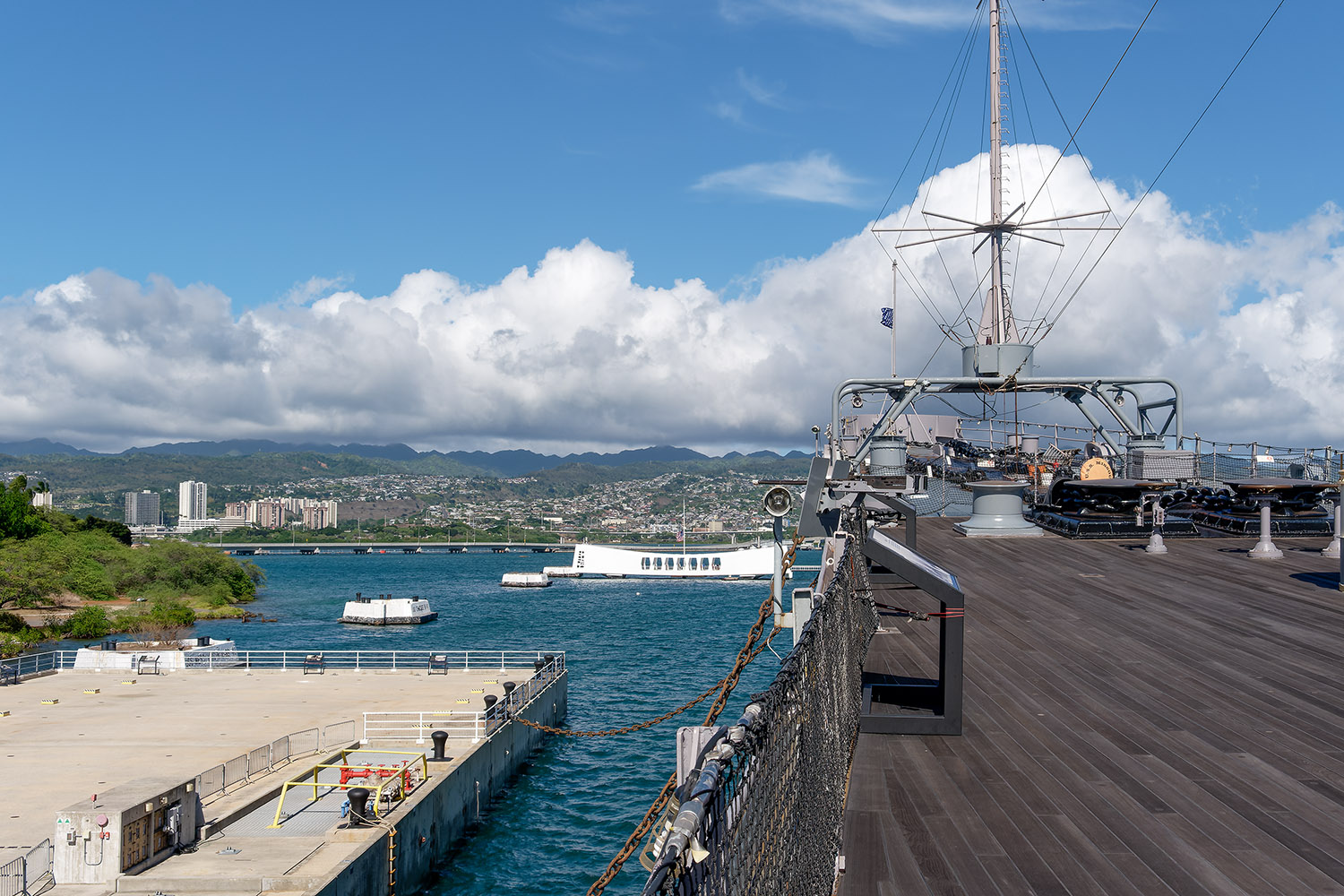
|
The main deck of the U.S.S. Missouri |
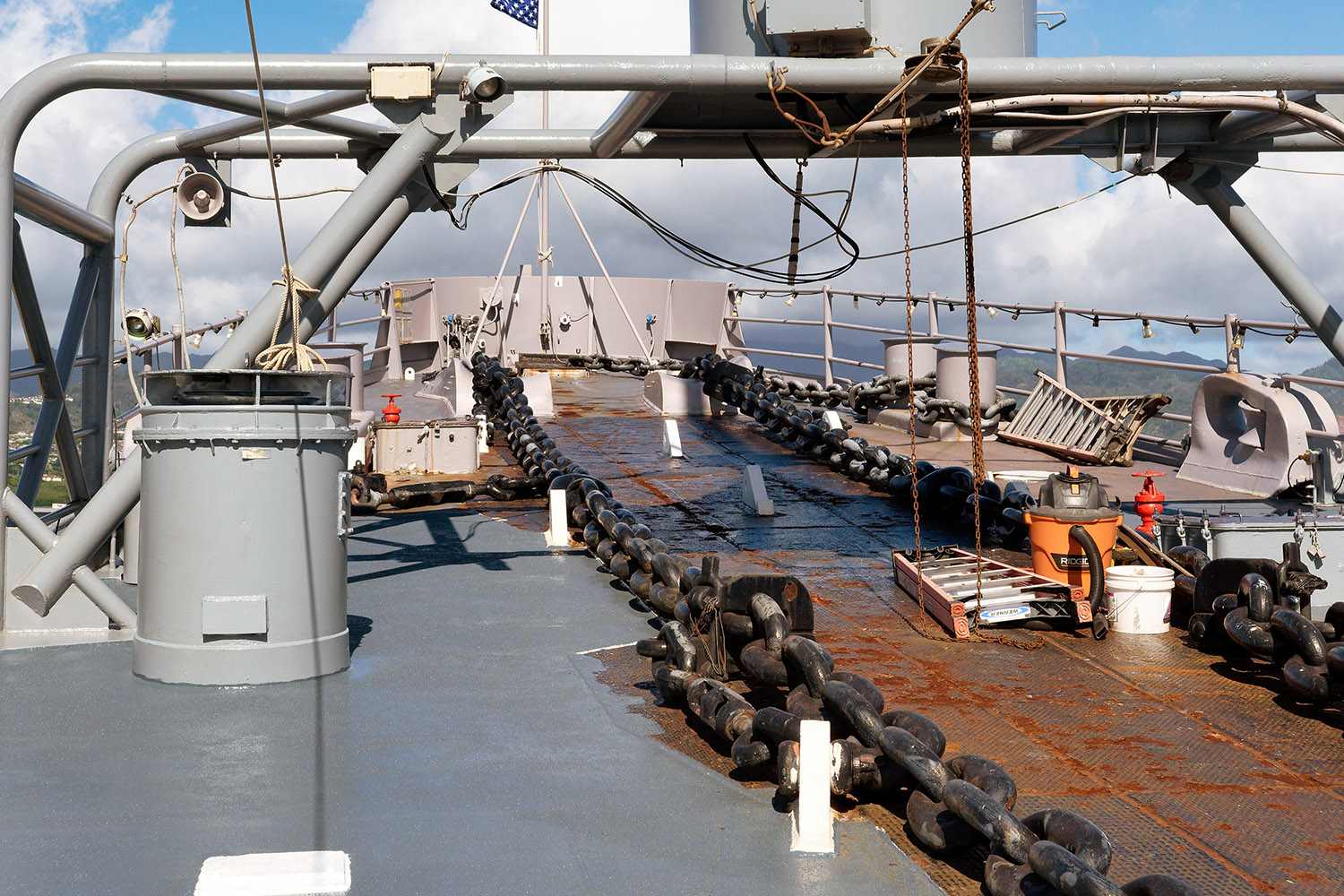
|
The enormous anchor chains are as oversized as the battleship itself |
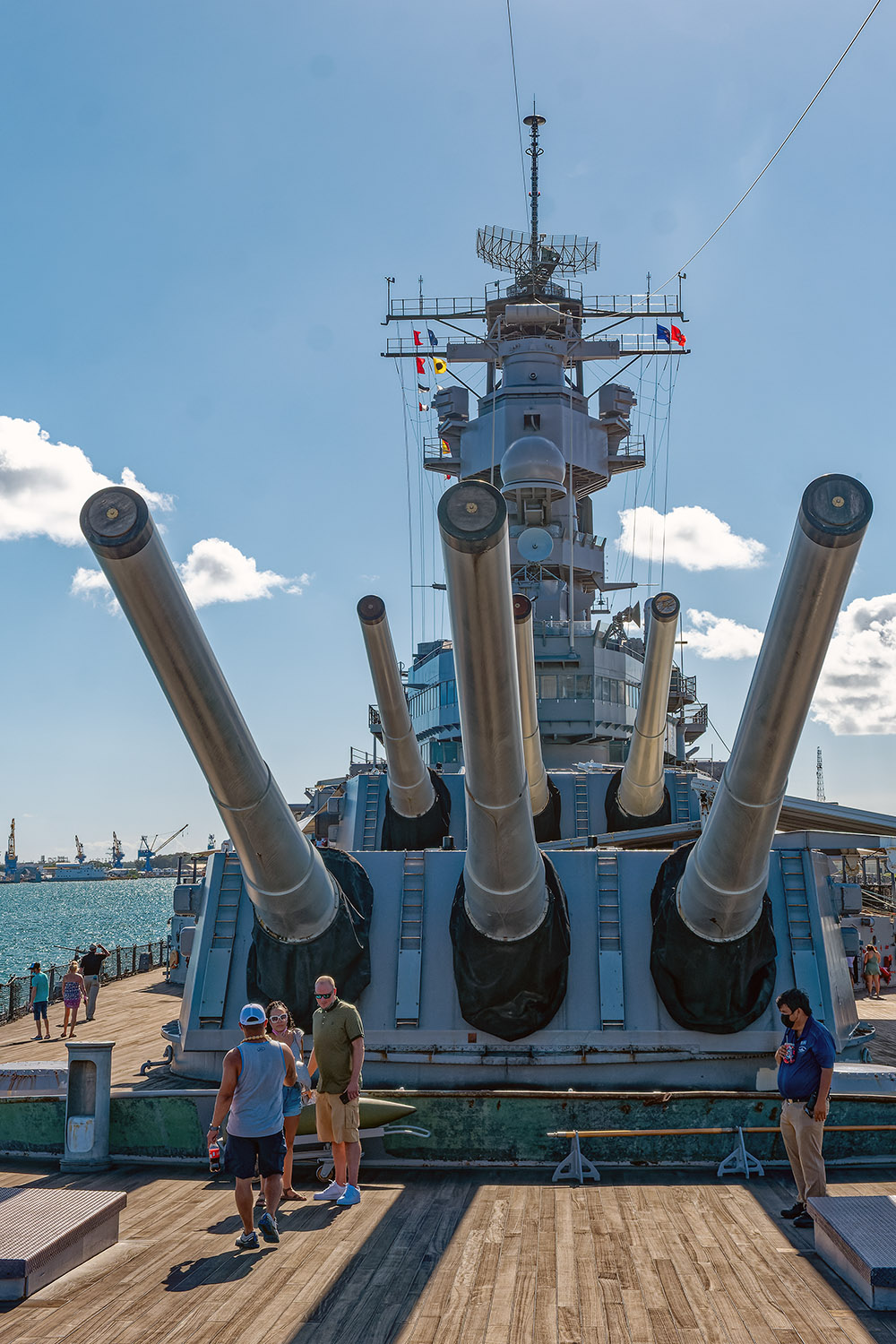
|
The main guns of the U.S.S. Missouri |
The U.S.S. Missouri packs enormous firepower with six forward-facing and three rear-facing 16-inch guns. Each gun barrel is 65 feet long and weighs an incredible 116 tons. The guns can fire a 2,700 pound shell at targets 23 miles away and do so with amazing accuracy. No wonder the ship's nickname is ""Mighty Mo"... But the U.S.S. Missouri's guns were by no means the largest ever used at sea: the Japanese battleships Yamato and Musashi featured 18-inch guns that could fire 3,200 pound shells over a distance of 27 miles. The end of World War II also signaled the end of the era of battleships.
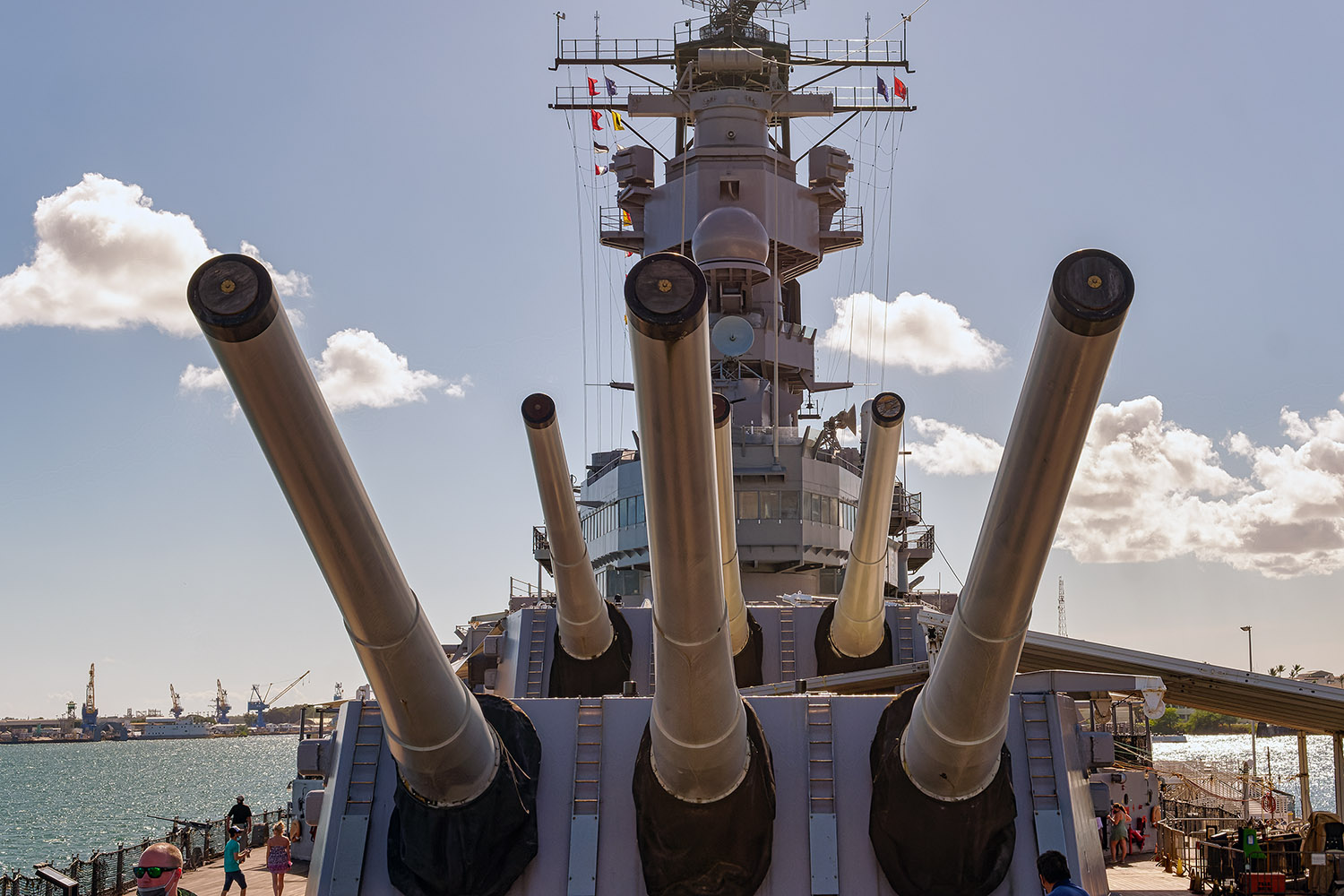
|
Six of the nine 16-inch guns. Each barrel is 65 feet and weighs 116 tons |
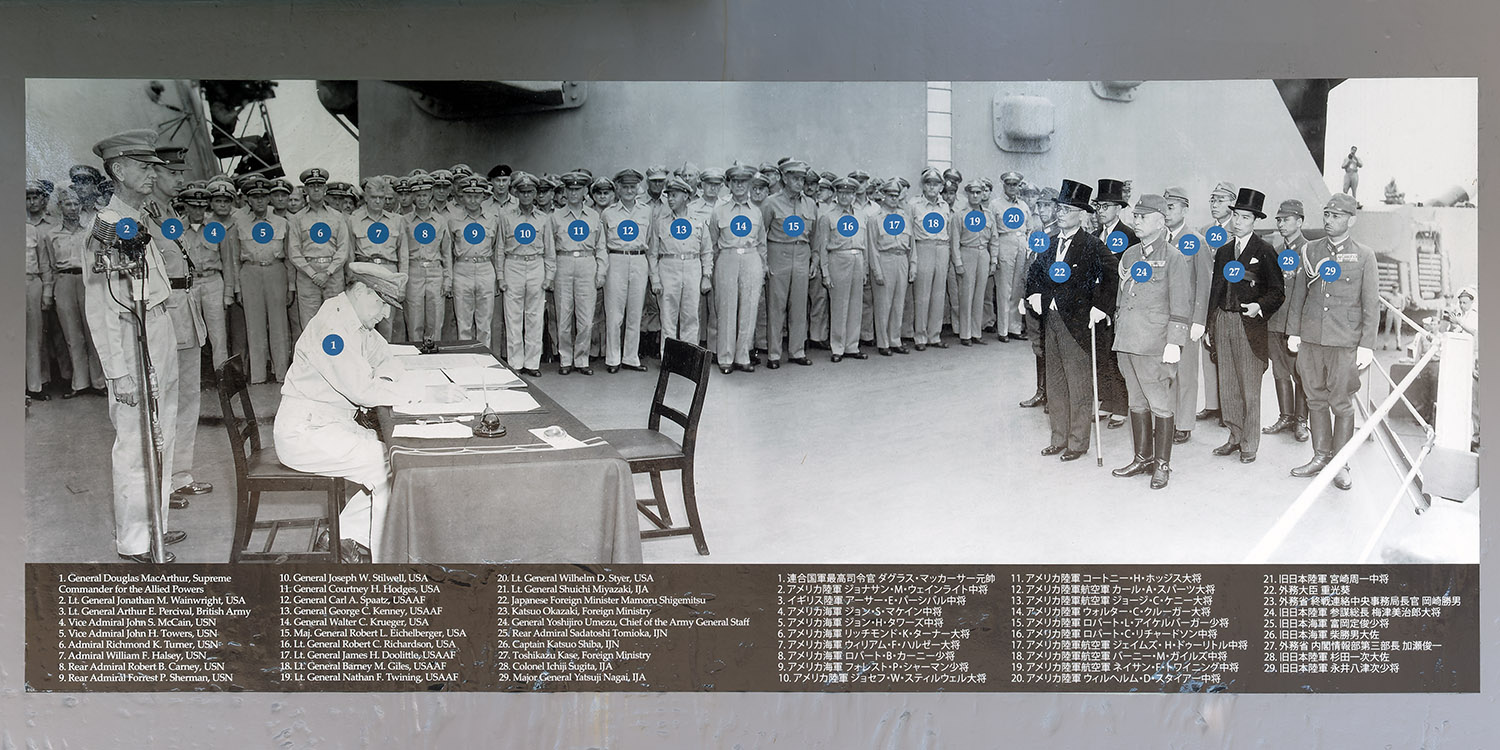
|
On September 2, 1945, Japan formally surrendered on this spot on the deck of the U.S.S. Missouri in Tokyo Bay, ending WW II |
The U.S.S. Missouri is probably most famous for the ceremony that took place on its main deck on September 2, 1945, in the bay of Tokyo: a Japanese delegation came on board to sign the surrender documents, thereby putting an end to World War II, a conflict that had started six years earlier with the German invasion of Poland on September 1, 1939. The war caused an estimated 70-85 million deaths according to this Wikipedia article. Today, the area of the U.S.S. Missouri where the ceremony was held is called the surrender deck.
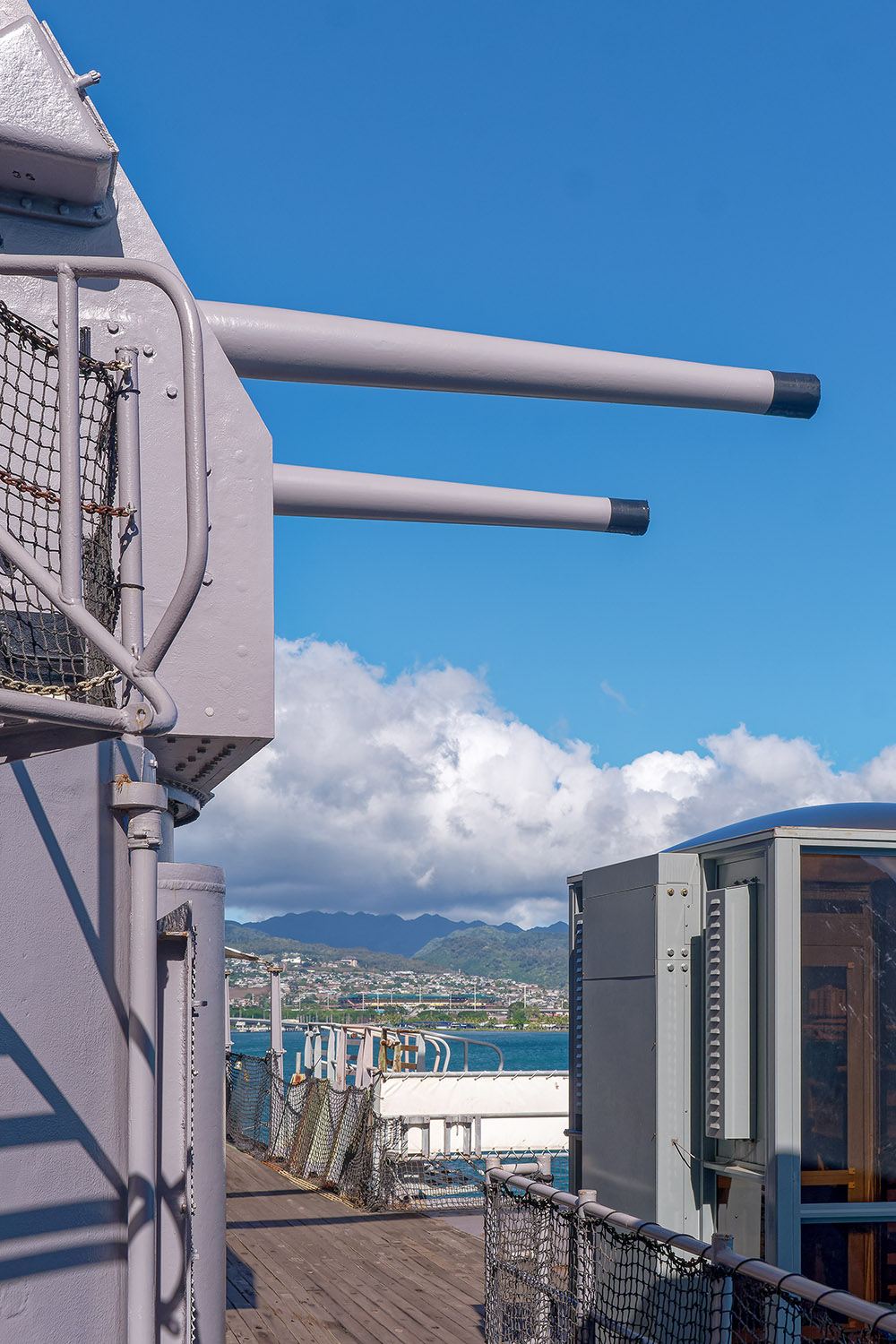
|
Two of the twenty 5-inch guns mounted amidships |
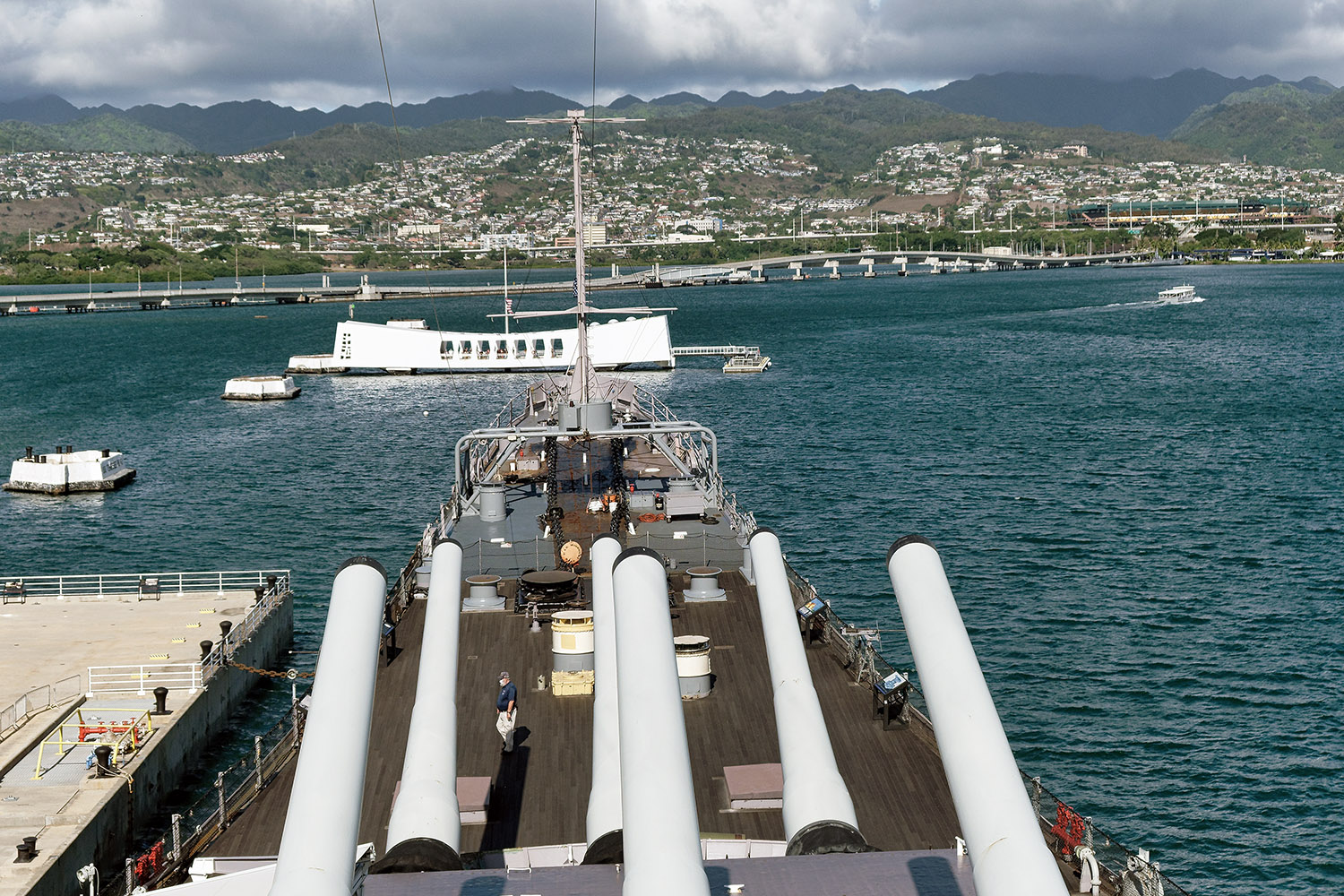
|
The view from the bridge onto the U.S.S. Arizona Memorial and the harbor |
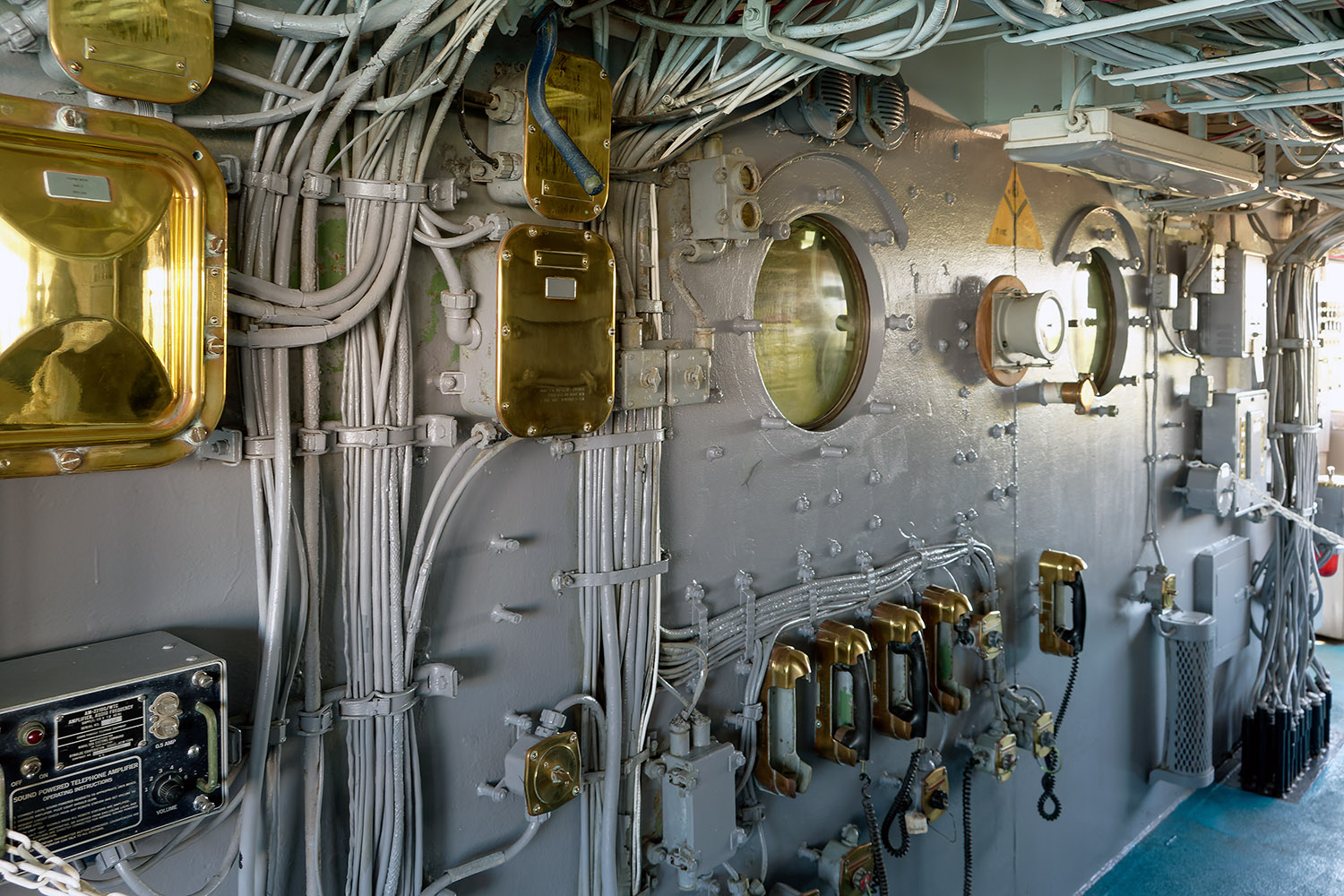
|
On the bridge of the U.S.S. Missouri |
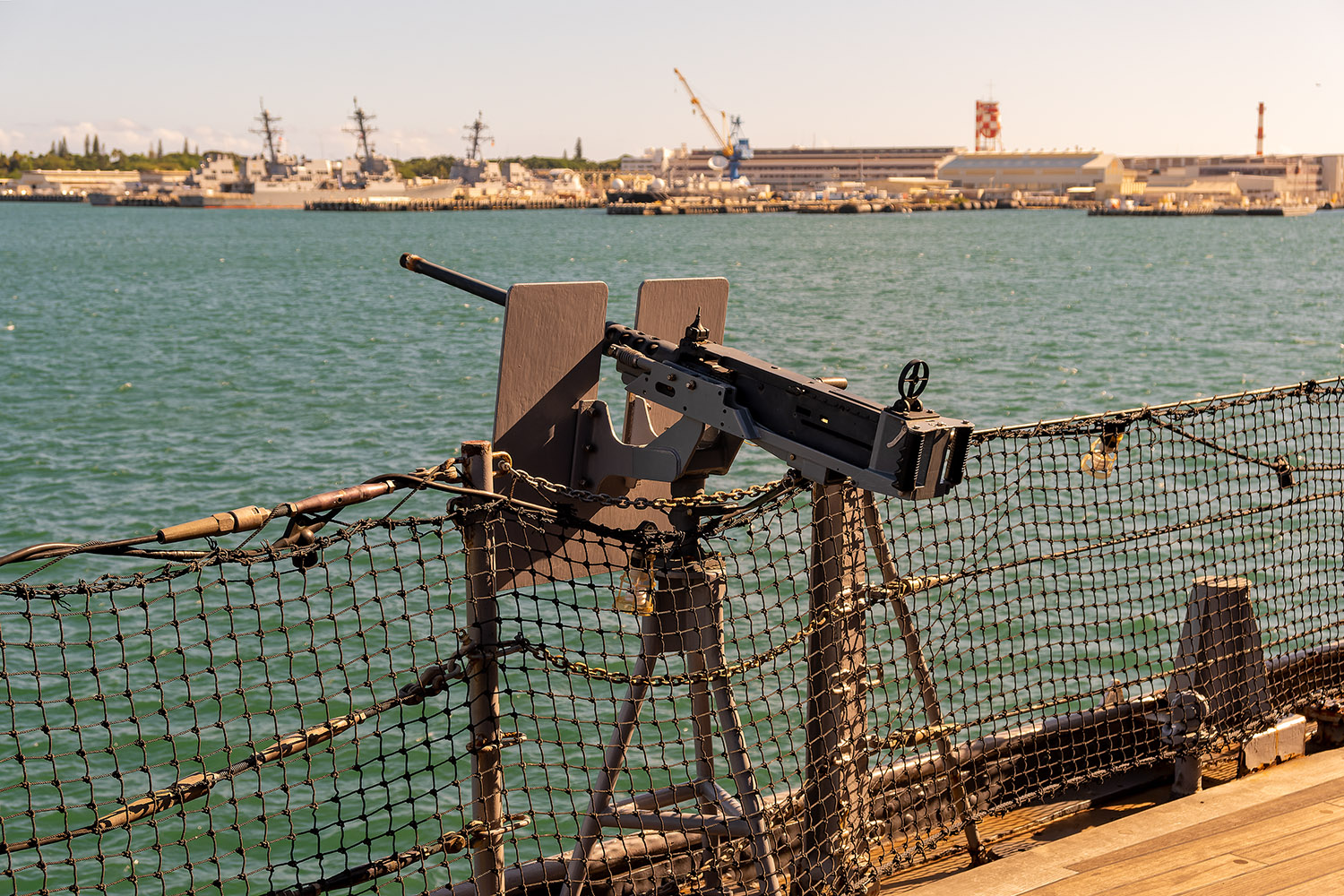
|
One of the eight 50-caliber machine guns mounted on the perimeter of the main deck in the 80s |
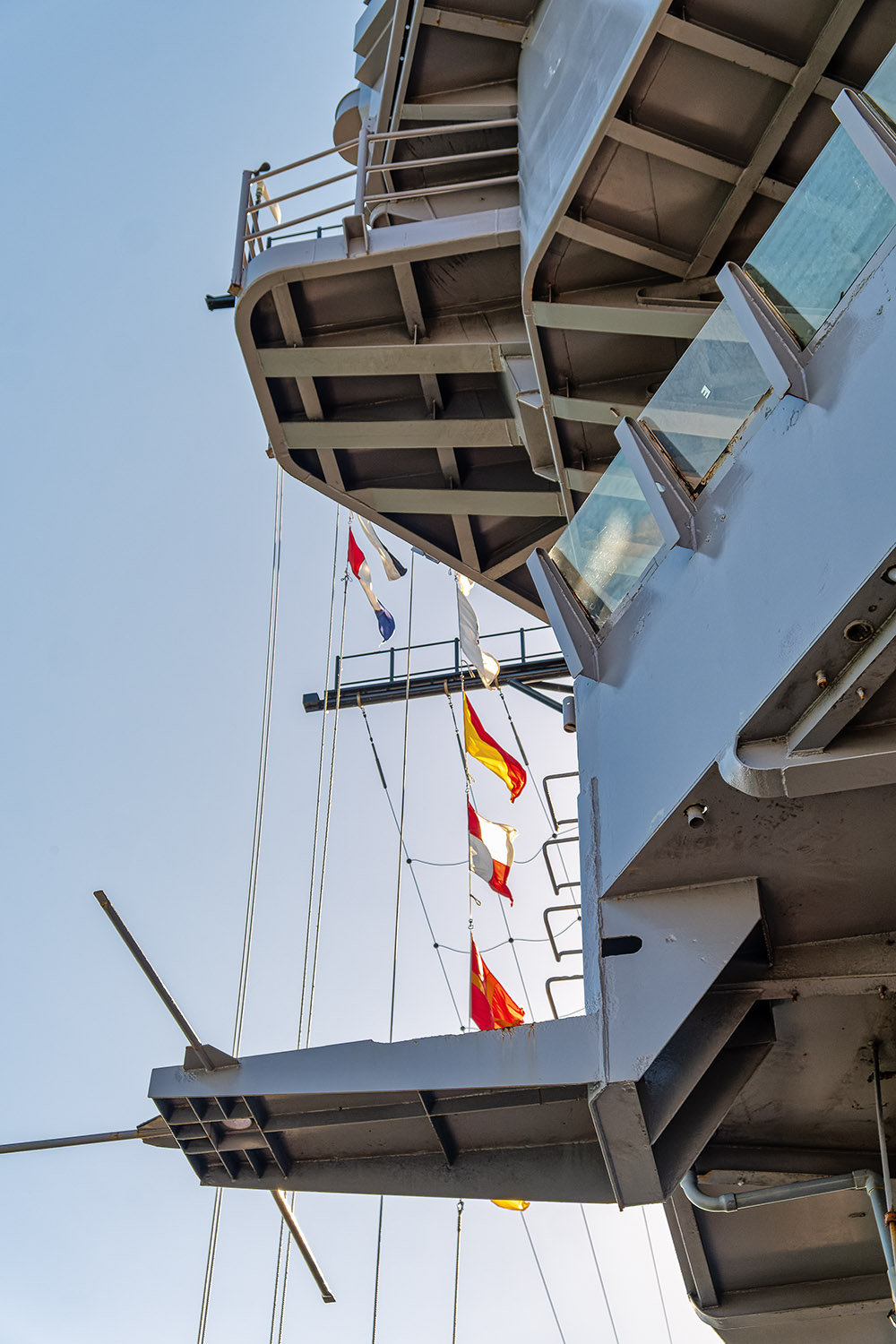
|
Looking from the main deck to the upper decks |
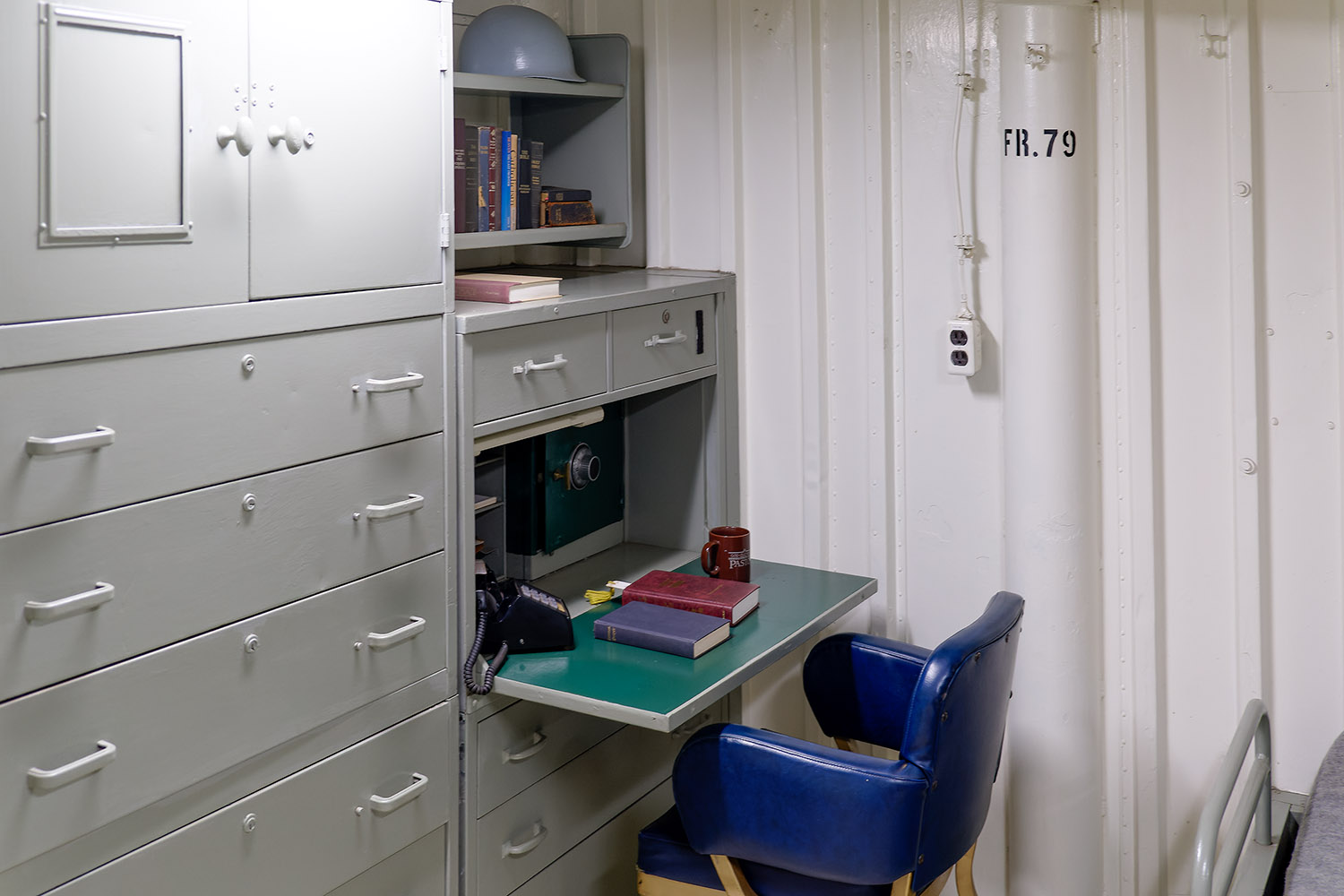
|
The Command Chaplain's cabin |
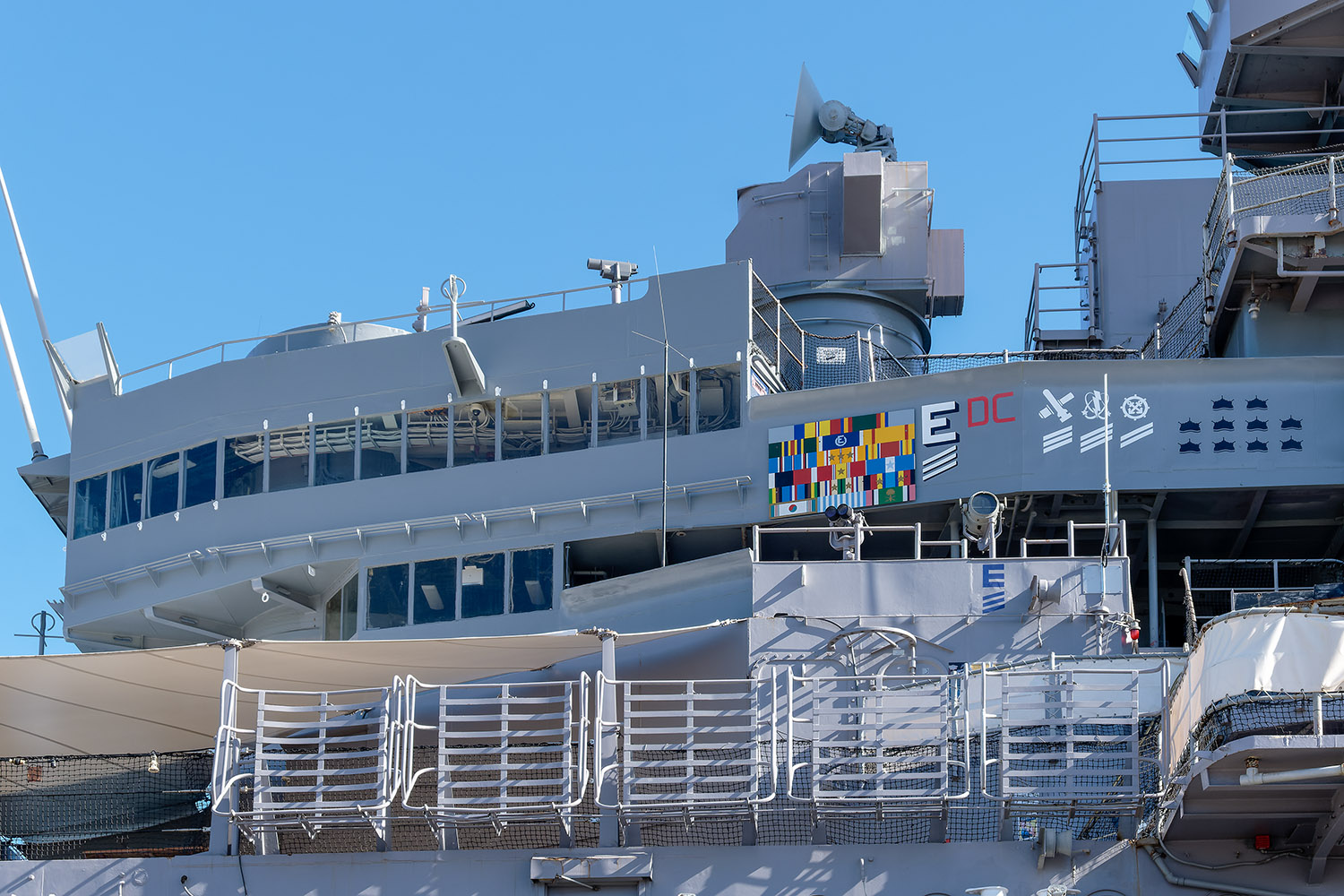
|
Looking up at the side of the U.S.S. Missouri |
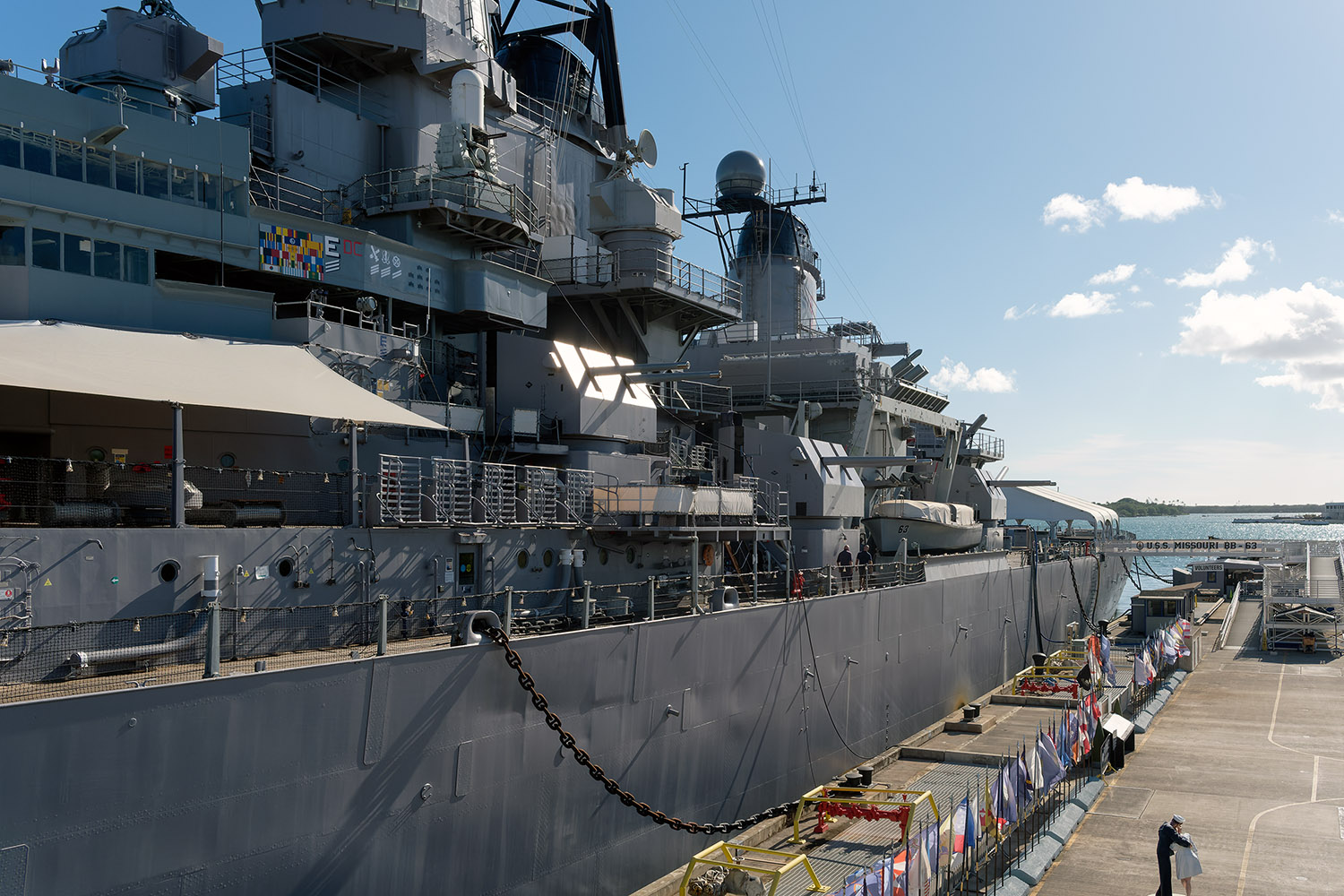
|
The Iowa-class U.S.S. Missouri is the most powerful battleship the US ever built |
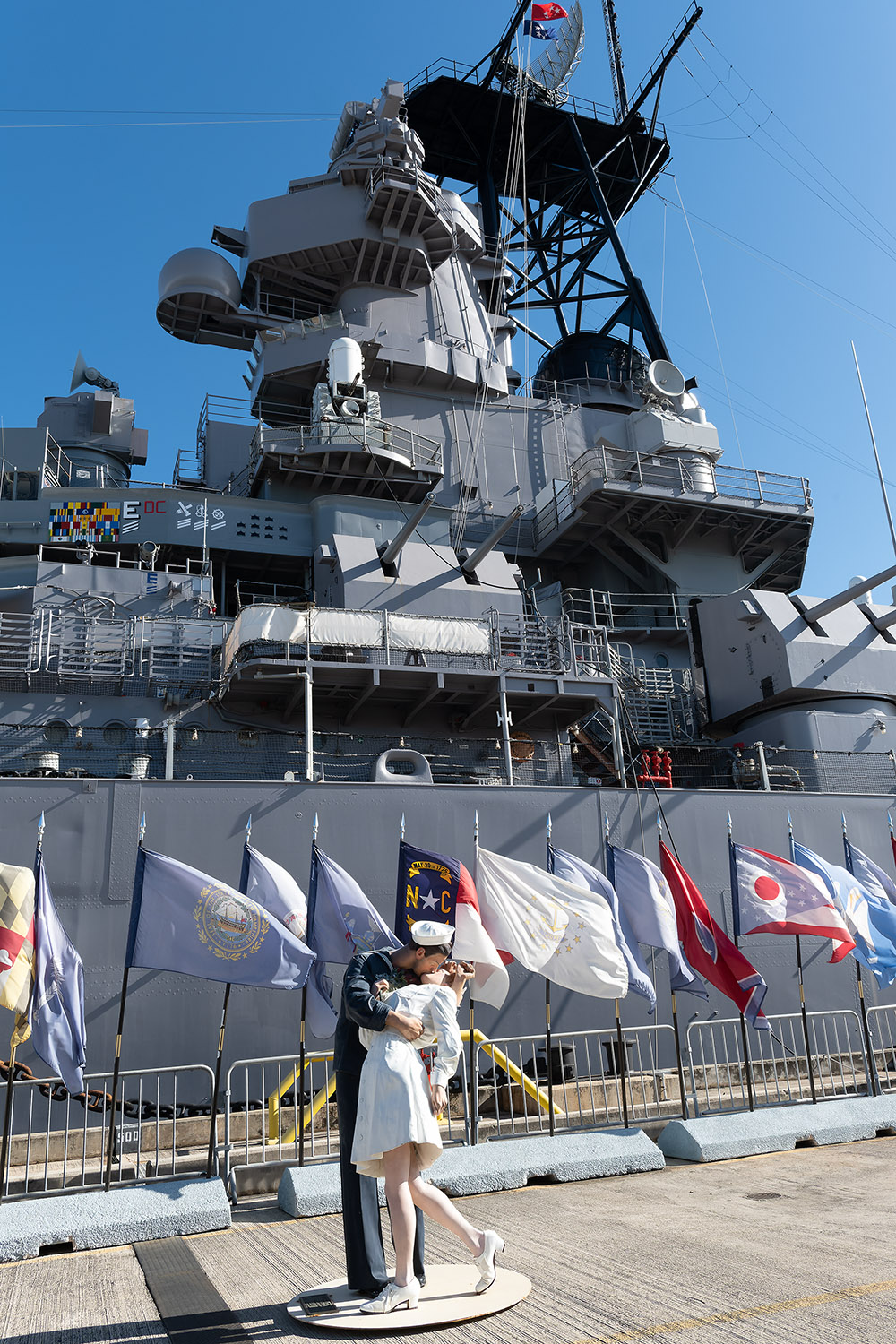
|
The U.S.S. Missouri behind a statue of a famous Alfred Eisenstaedt photograph |
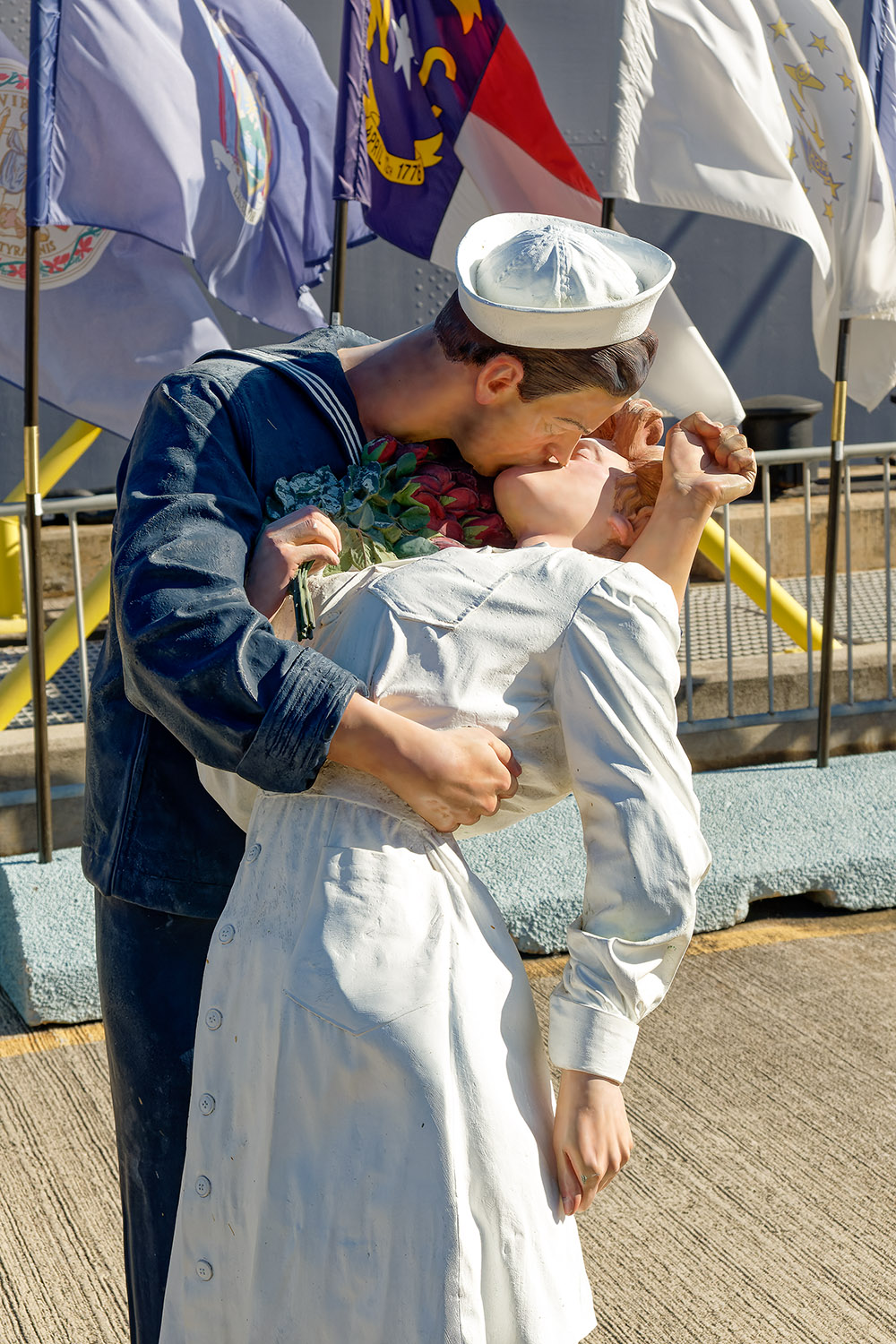
|
A closer look at the statue of Eisenstaedt's V-J Day in Times Square photograph |
The third stop on our Pearl Harbor tour was the Aviation Museum. A shuttle bus operated by the military takes visitors from the pier were the U.S.S. Missouri is docked to the airfield with its famous control tower (familiar to aficionados of war movies as it was featured in productions such as Tora! Tora! Tora! and several others.) The museum offers a great deal more than what I am presenting here; for example, there is an extensive collection of newer planes and helicopters. On this page, I mostly focused on aircraft relevant in the historic context of Peral Harbor.
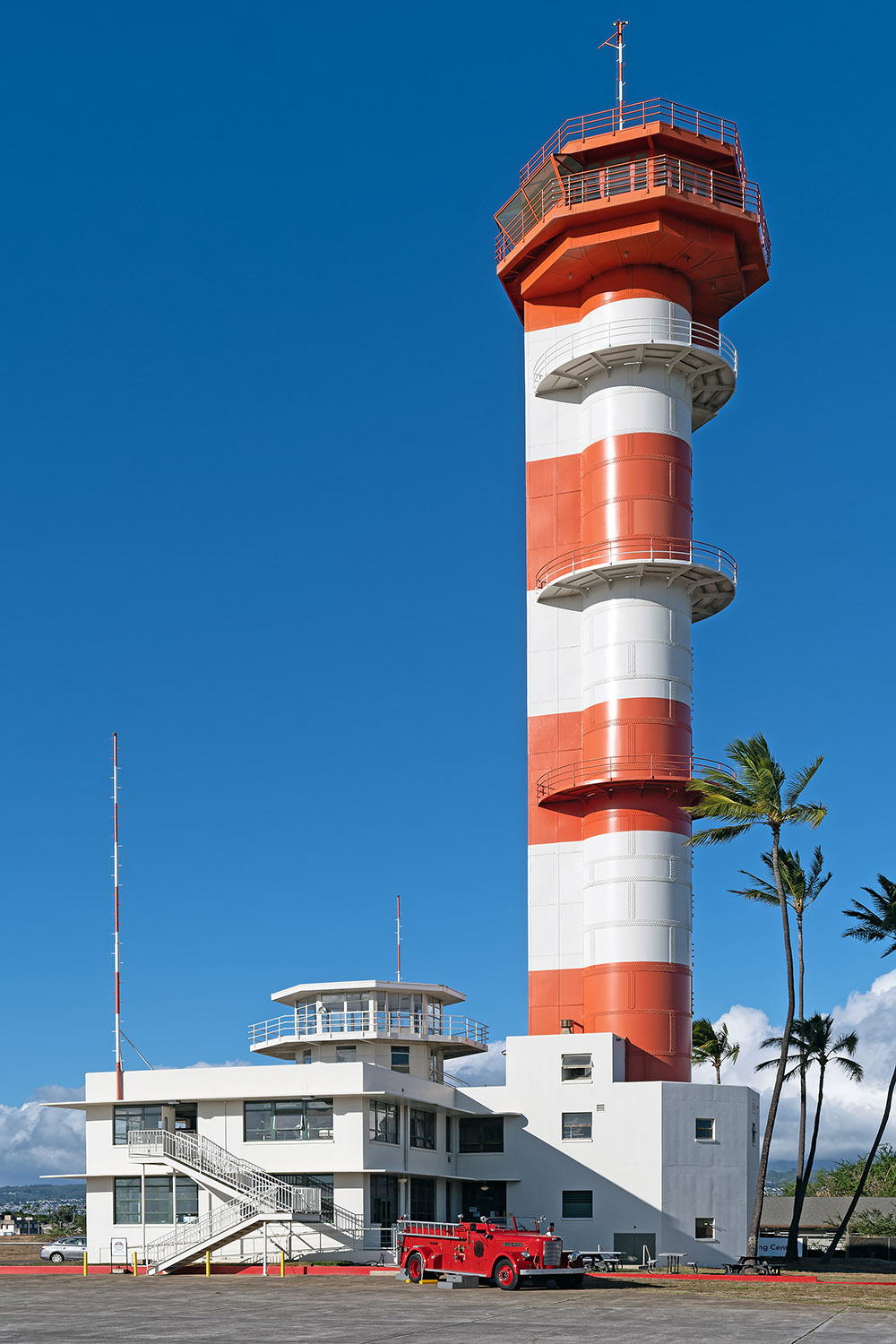
|
The iconic control tower of Hickam Field, Ford Island, Pearl Harbor |
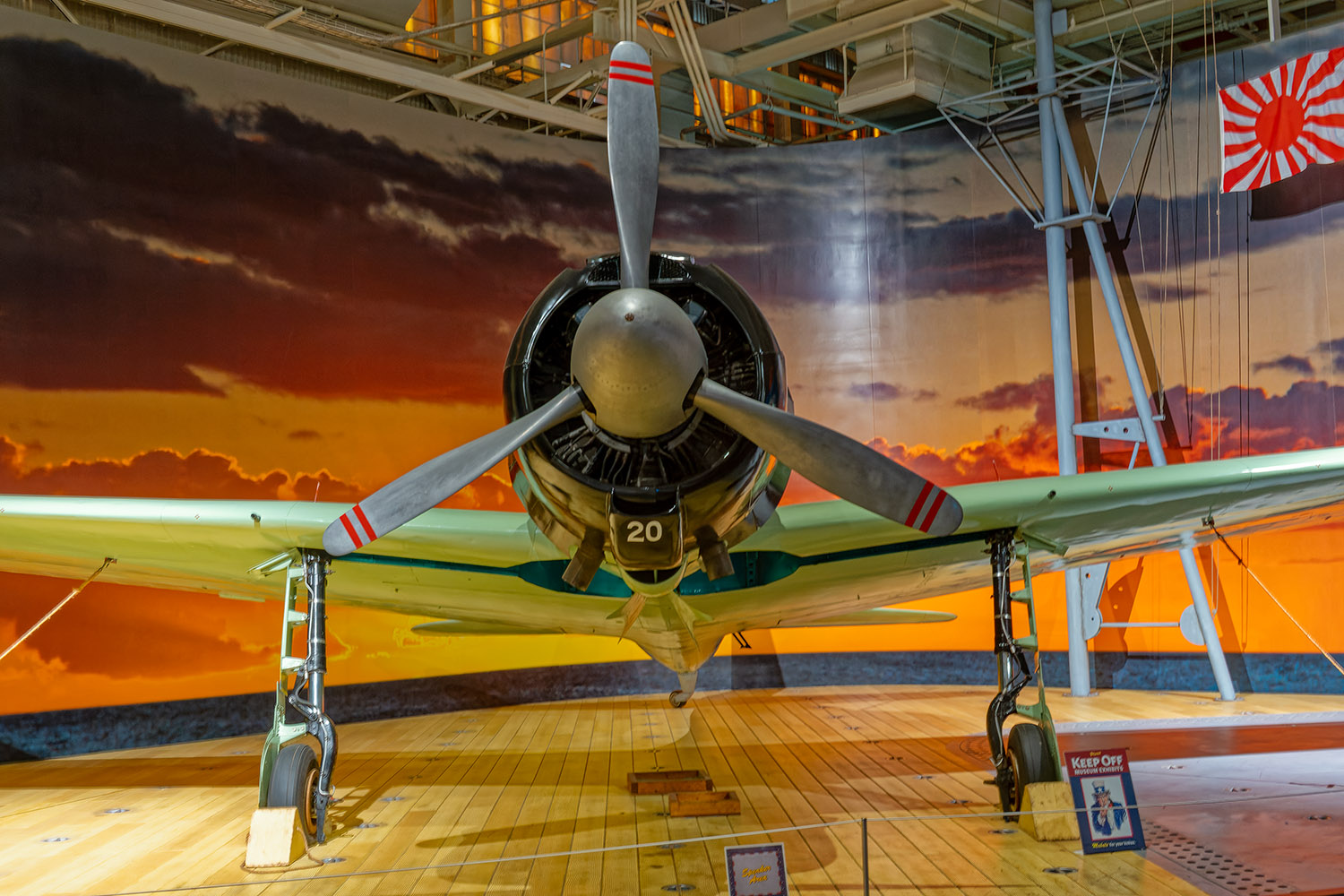
|
A Mitsubishi Zero long-range carrier-based fighter plane |
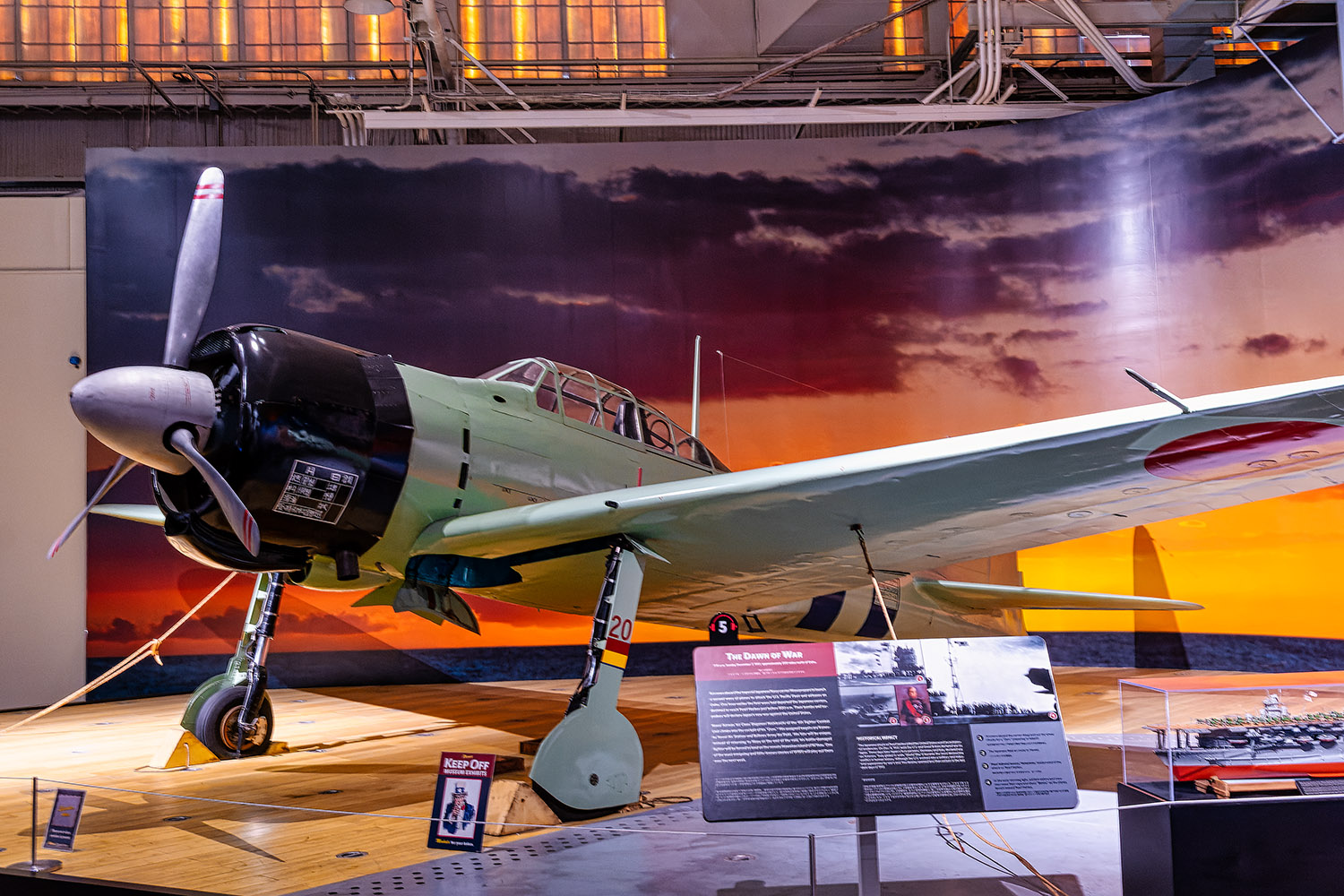
|
Another look at the Mitsubishi Zero, the pillar of the Japanese attack on Pearl Harbor on December 7, 1941 |
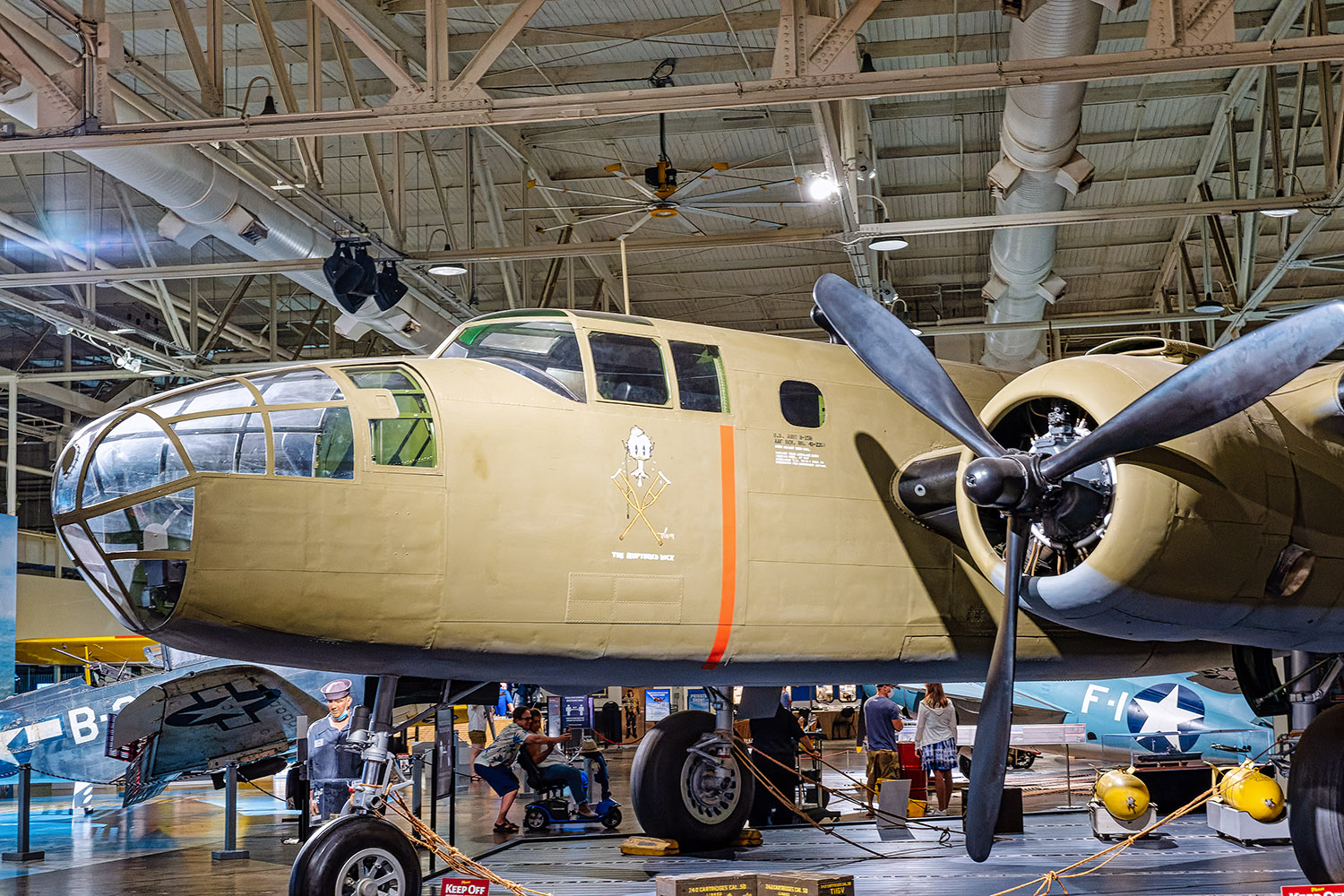
|
A North American B-25 Mitchell, a plane made famous by the Doolittle Raid |
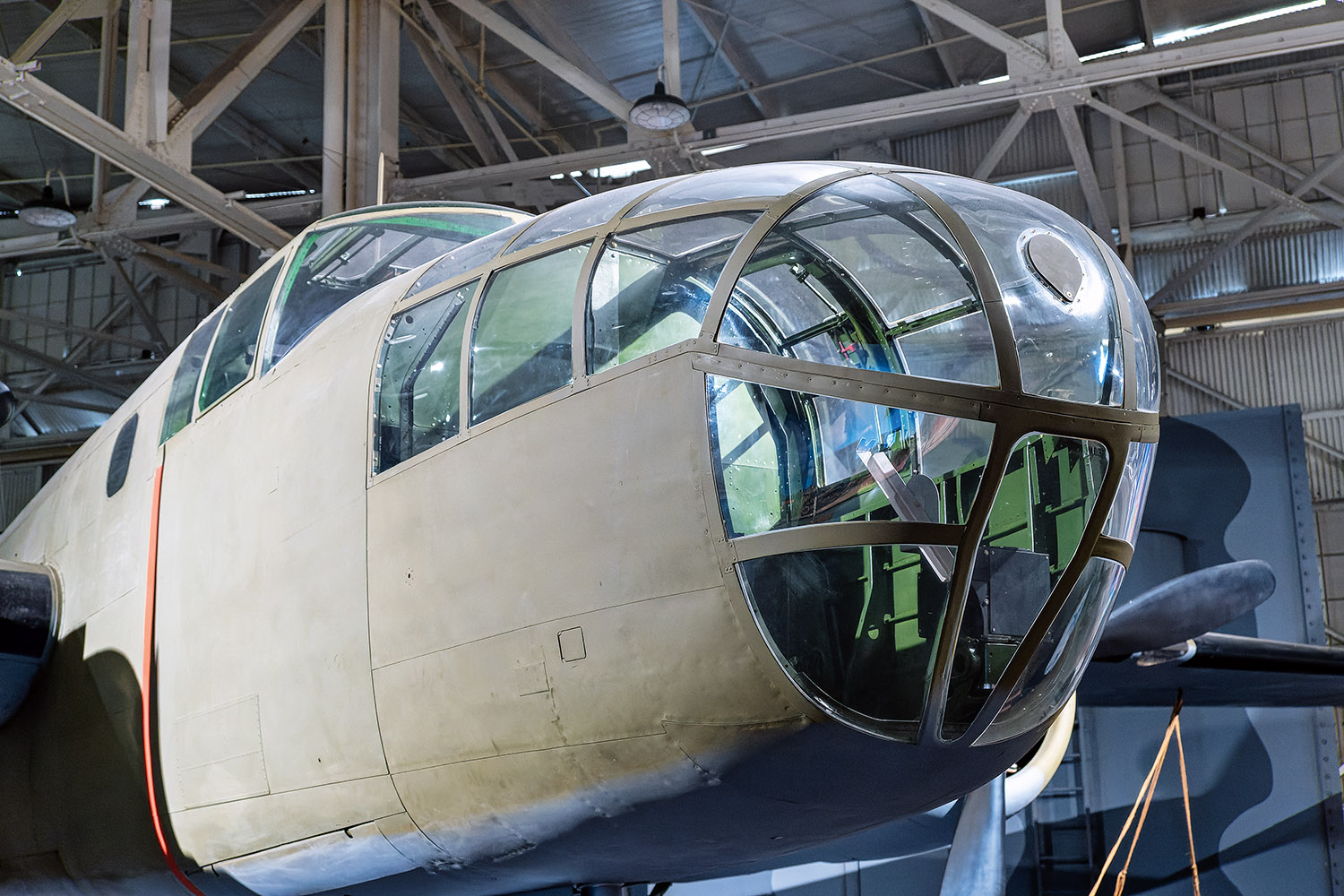
|
The front of the North American B-25 Mitchell |
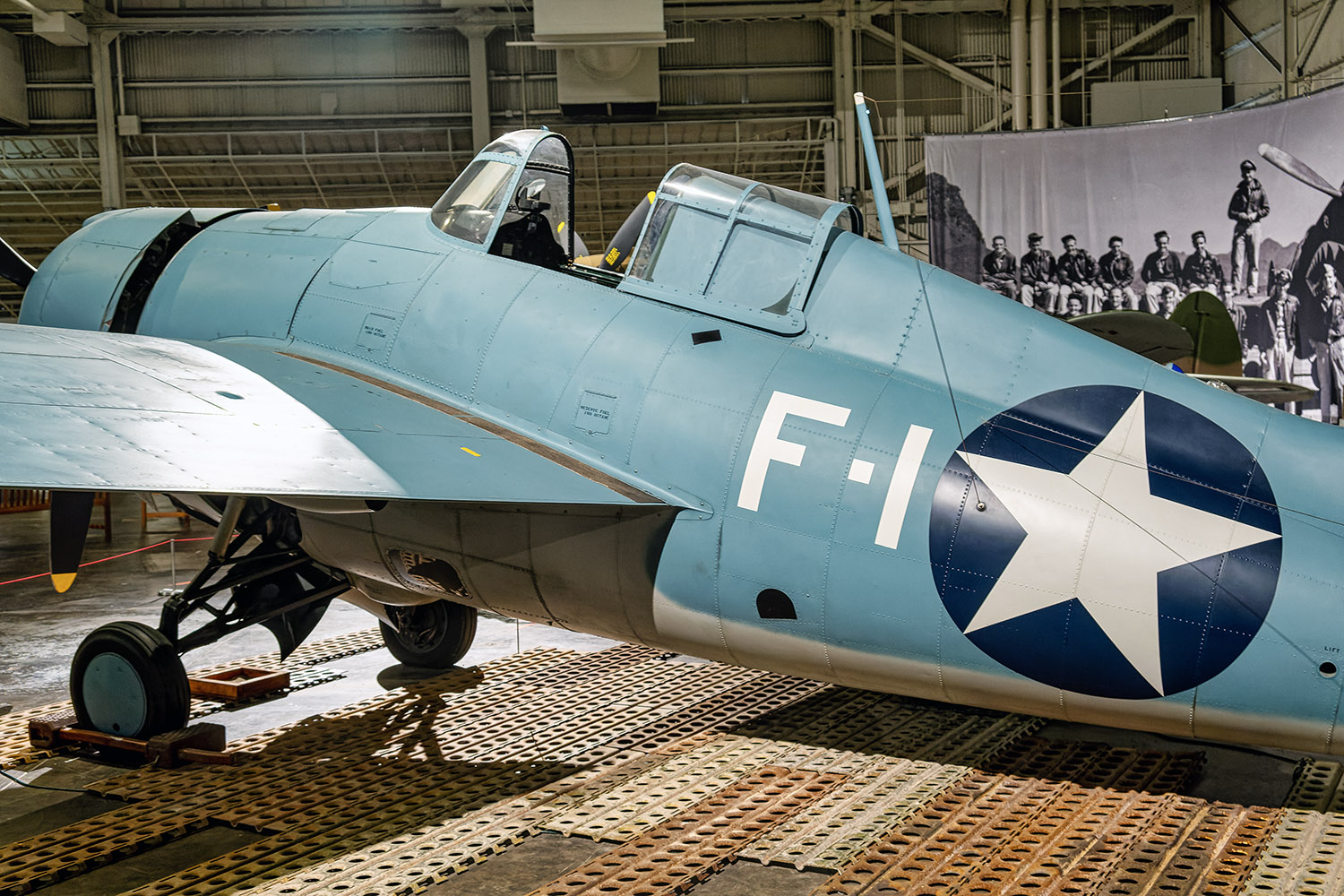
|
The Grumman F4F Wildcat was the only effective US fighter plane in the Pacific during the early part of WW II |
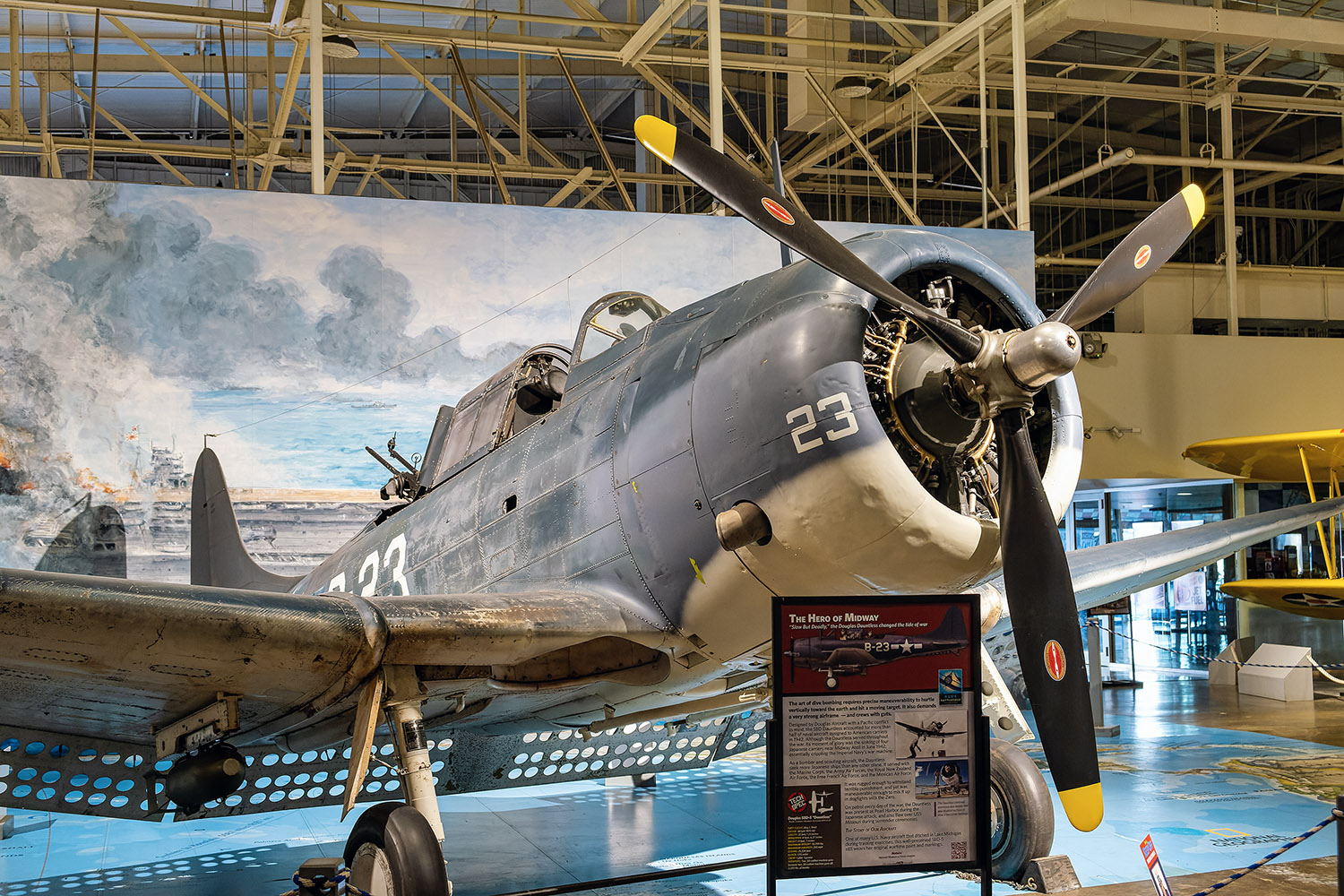
|
The Douglas SBD Dauntless, a US naval scout plane and dive bomber that was instrumental in winning the battle of Midway |
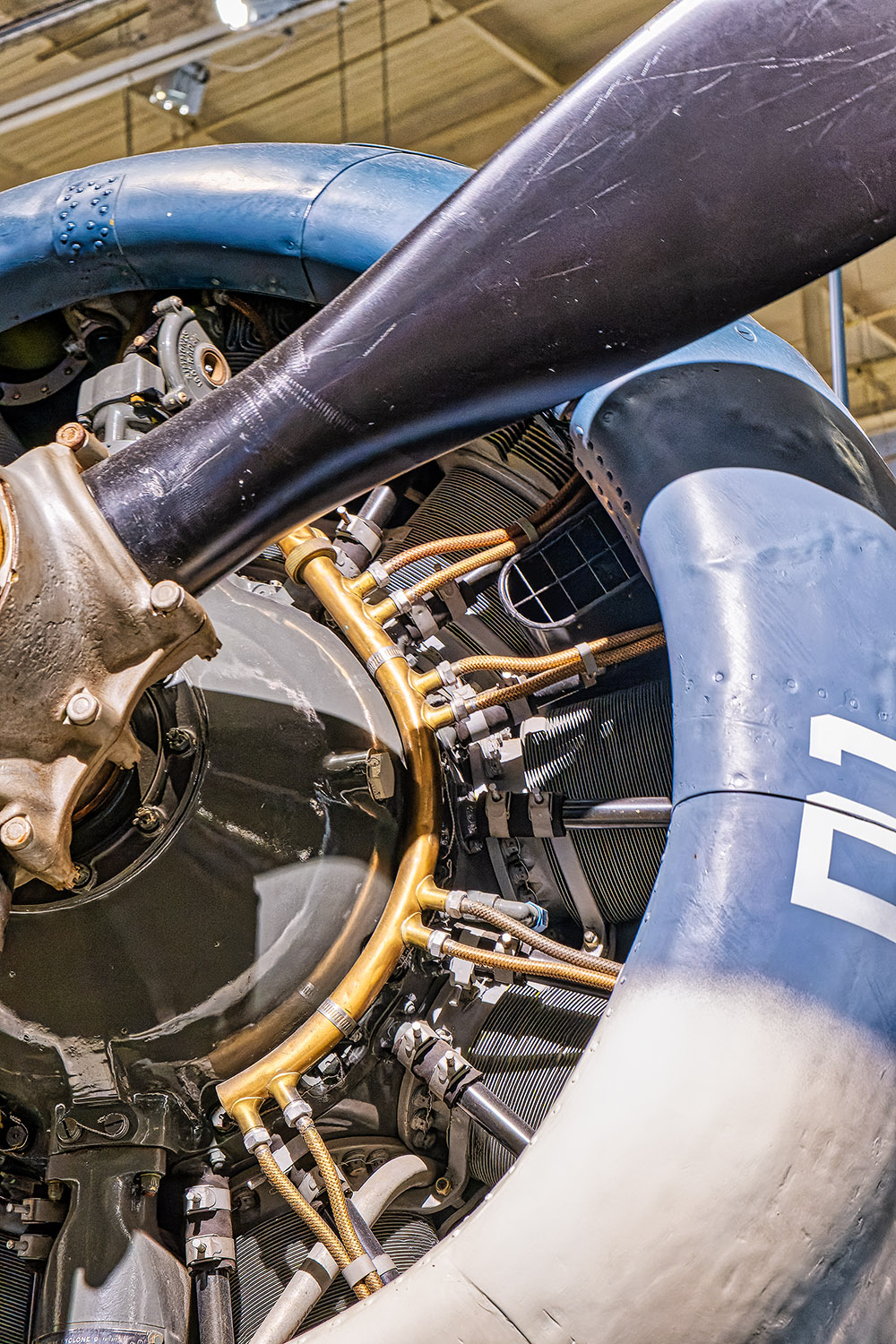
|
A look at the engine of the Douglas SBD Dauntless |
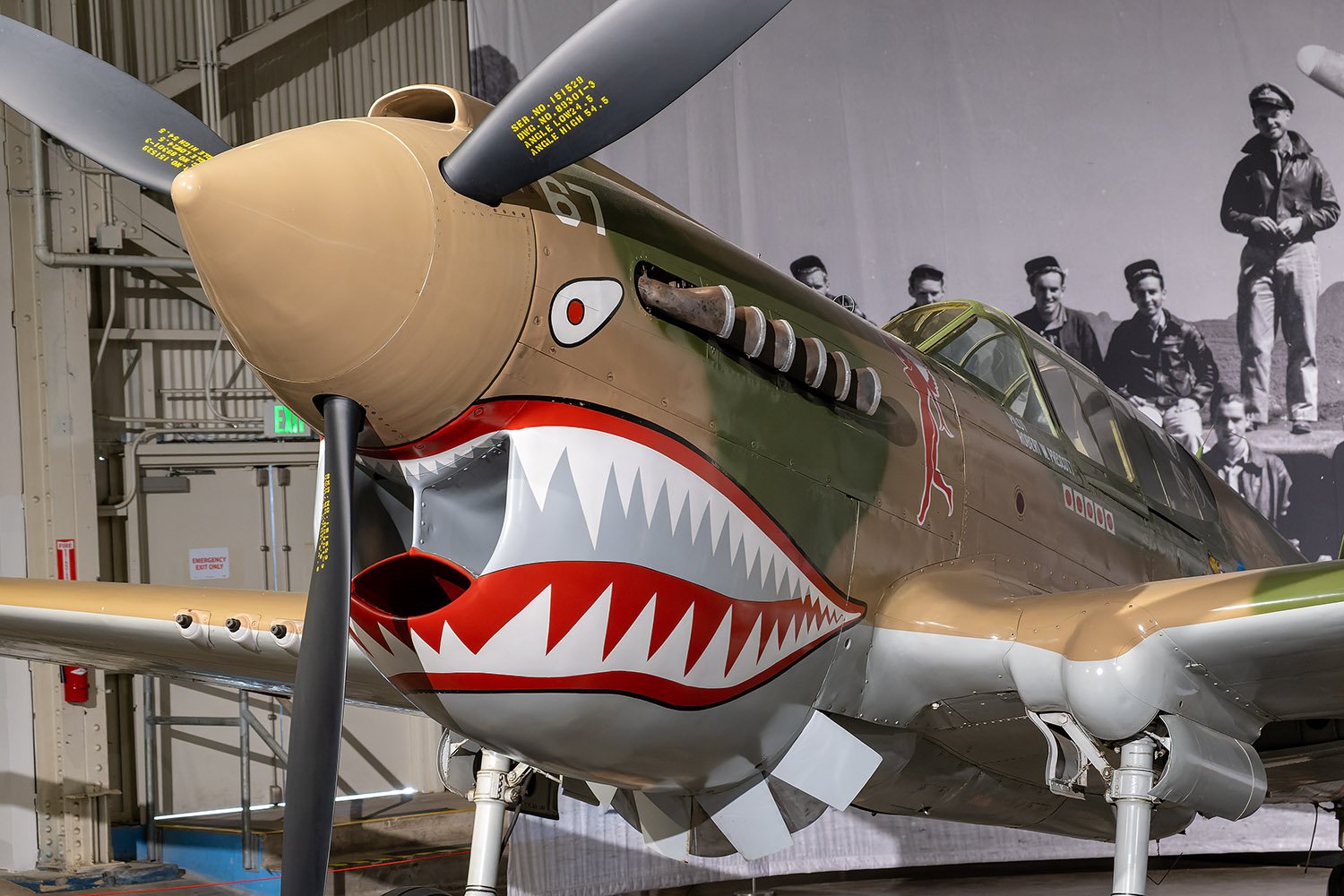
|
A shark-mouthed Curtiss P-40 Warhawk flown by the volunteer group Flying Tigers |
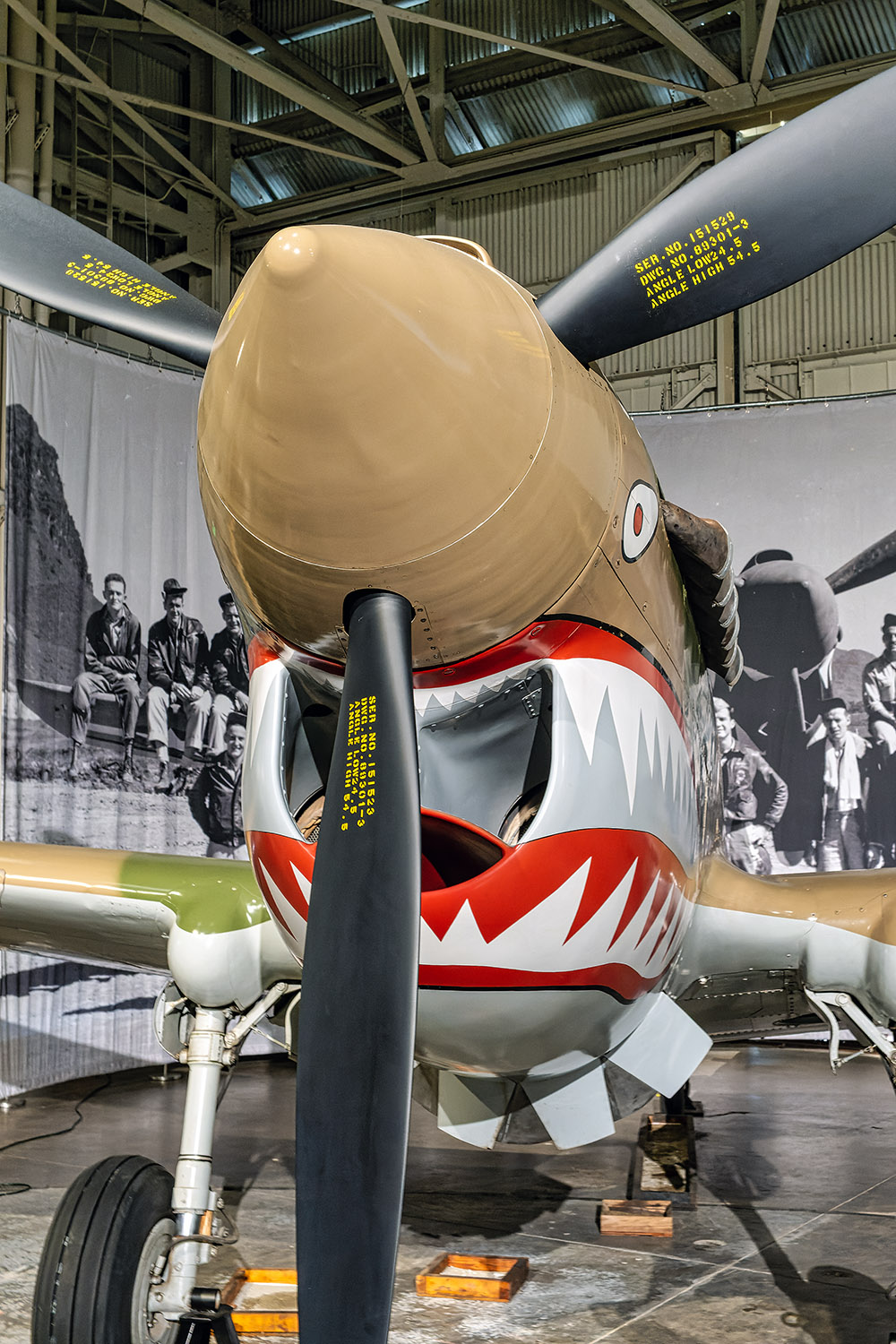
|
A look at the front of the Curtiss P-40 Warhawk |
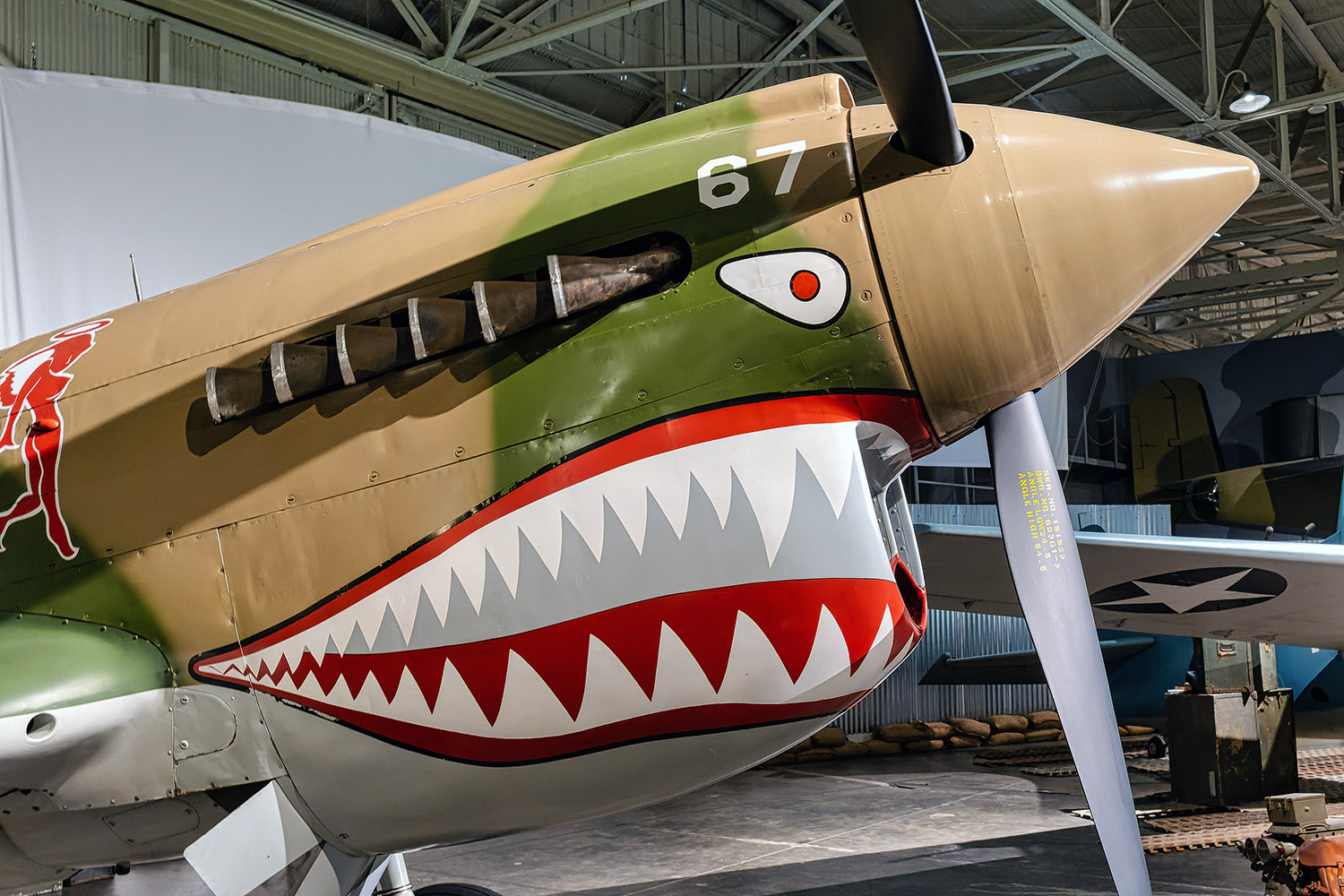
|
A side view with the impressive teeth |
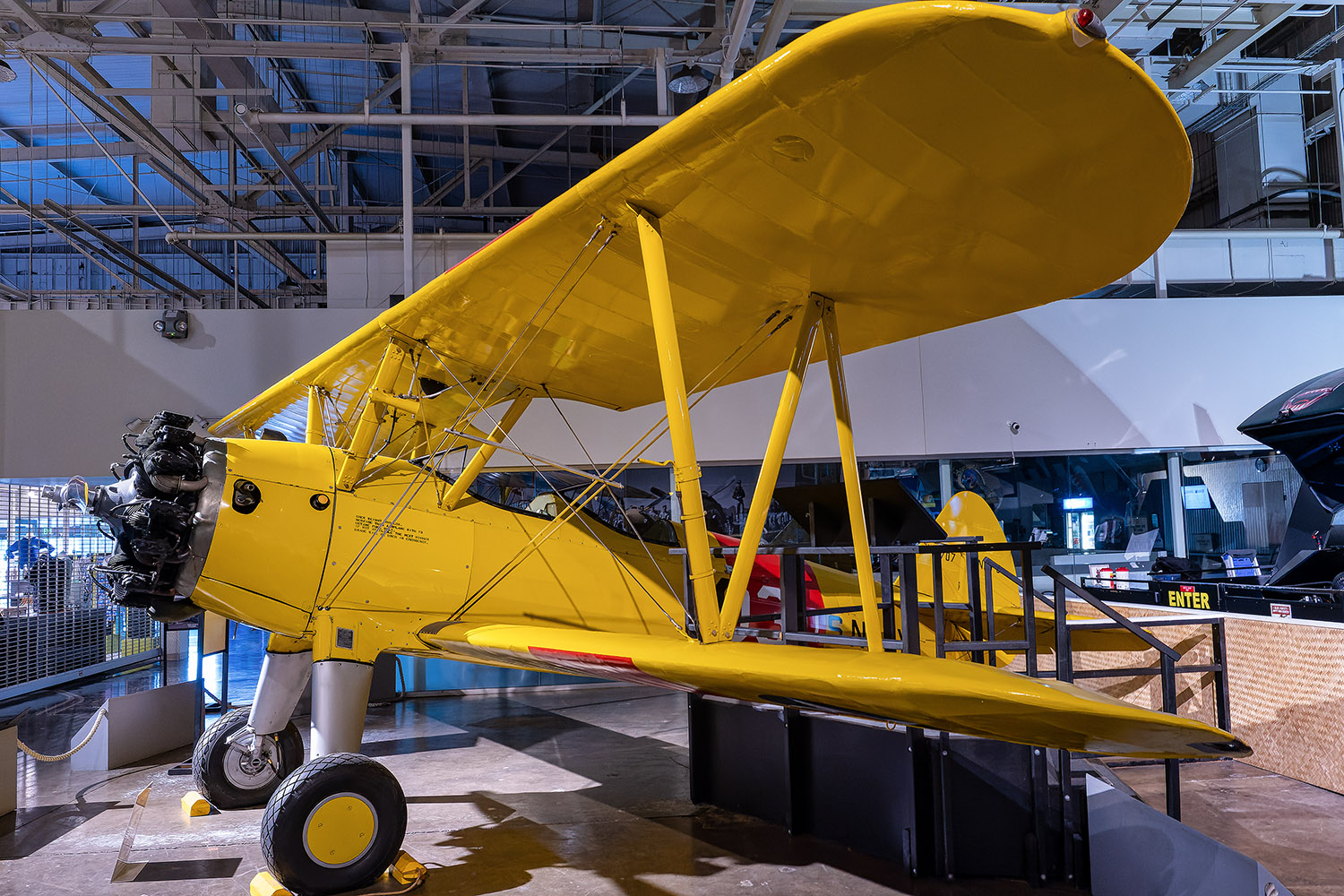
|
A Boeing N2S-3 Stearman Kaydet training aircraft |
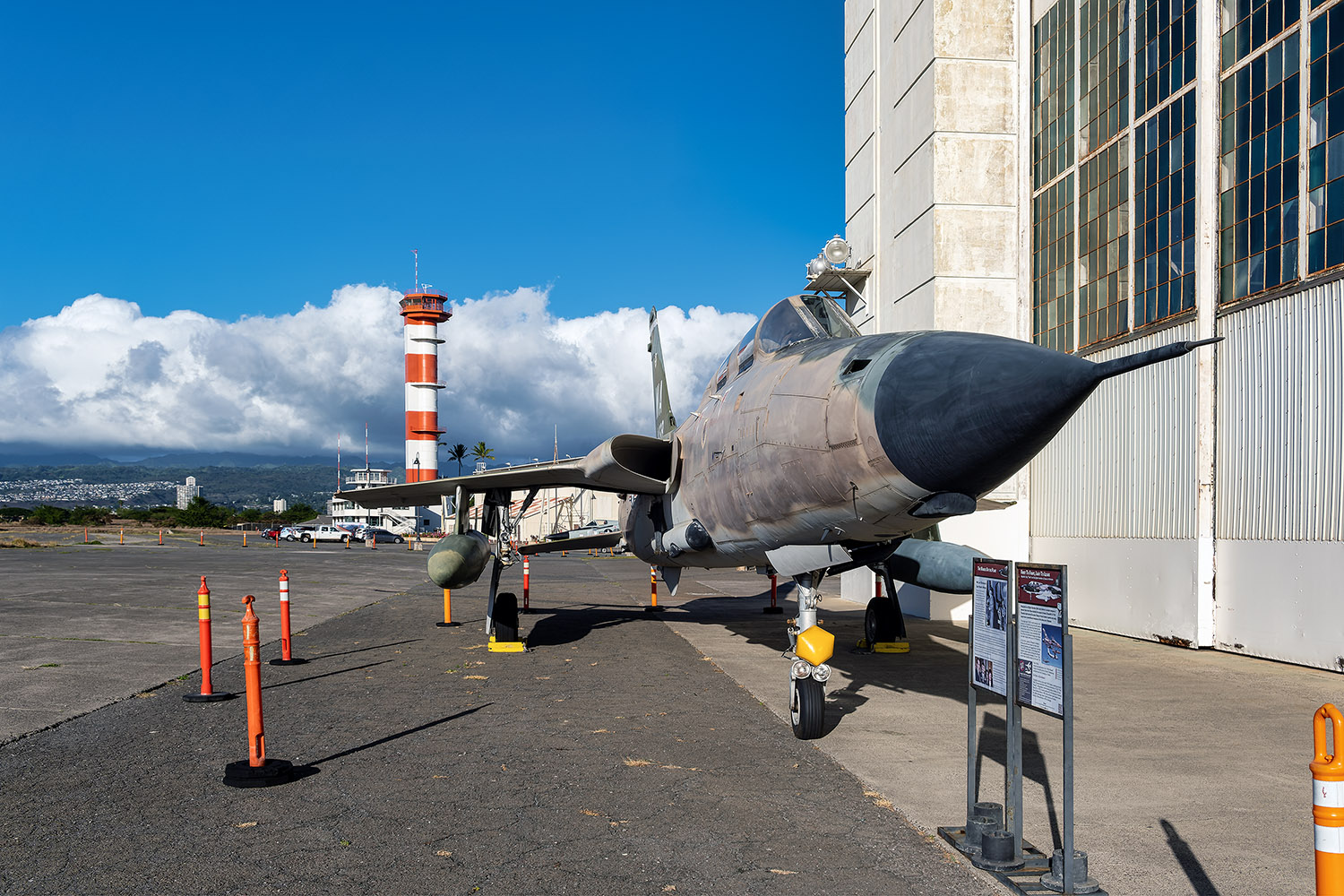
|
There are also more modern aircraft, such as this supersonic fighter-bomber Republic F-105 Thunderchief |
The photos on this page were taken on October 18, 2021.
Home | Site Info | Family | The Area | Trips | France | Work | Rants | Photography | Odds & Ends
This page was last modified on December 1, 2021
Send feedback about this page to feedback@kiechle.com
https://www.kiechle.com/trips/pearl/index.htm
(optimized for Retina display)
All contents © 1999-2026 The Kiechles